VARTEKS District: Contract Signing for Roundabout Marks Beginning of Urban Regeneration
June 10, 2022 - In June 2021, the revitalization of the Varteks textile industry premises was declared a strategic investment project of the Republic of Croatia called "VARTEKS district - urban regeneration".
As part of the project of great economic importance for the City of Varaždin and all its residents, through cooperation between the City of Varaždin, Varteks, and Austrian investor SES Spar European Shopping Centers, the northeastern part of the old factory will become S-PARK Varaždin, the central part of the revitalized VARTEKS district, today's press conference at the City Hall concluded, where the partners signed a contract to construct a roundabout on Zagrebačka Street. This will be the first step of the new project, and an agreement on cooperation for the strategic investment project "VARTEKS district - urban regeneration".

"The city of Varaždin welcomes the arrival of S-PARK in Varaždin as part of the project "VARTEKS district - urban regeneration" which the Government of the Republic of Croatia has declared a strategic investment project. This will not only be another shopping center in the city, but it will revitalize valuable space that has lost its original economic purpose. It is important to us residents of the city of Varaždin that the architectural solution is fully respectable and our industrial heritage and brand that is a kind of symbol of the city. It was created for years from the former Tivar to today's Varteks. We consider it necessary and support the regeneration of this valuable space because it preserves jobs and keeps production Varteks. At the same time, S-PARK means creating new jobs in the store and providing better supply and new facilities to all citizens", concluded Neven Bosilj, mayor of Varaždin.
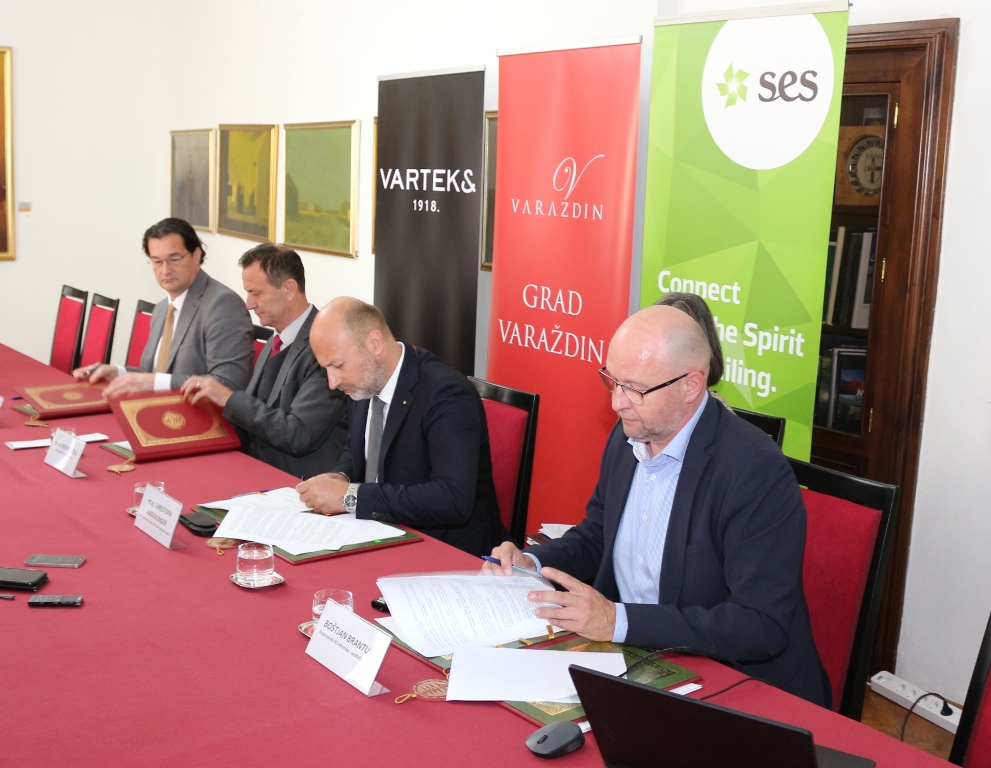
"S-PARK Varaždin will be the first and unique retail park in Croatia to be developed in a historically important industrial site. I am very proud that we as SES have the opportunity to develop a quality, new meeting place with retail, gastronomic, and service facilities for people in Varaždin and its surroundings. In doing so, we will be guided by the important historical heritage of this place, which will be our inspiration for the design of the new S-PARK," said Christoph Andexlinger, Chief Operating Officer of SES Spar European Centers.
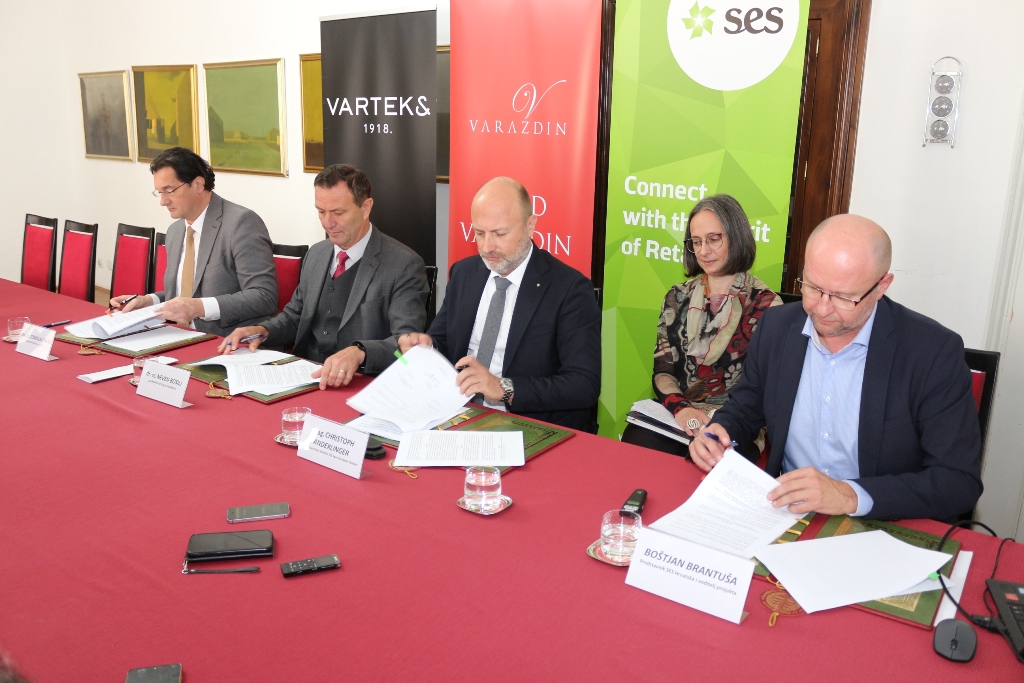
SES Croatia representative and project manager Boštjan Brantuša revealed that in the northeastern part of Varteks there will be a complex of commercial, gastronomic, and service facilities, and the first Interspar in Varaždin, which will significantly raise the standard of available content to citizens.
The Chairman of the Board of Varteks, Tomislav Babić, expressed his satisfaction that the City of Varaždin also recognizes the value and quality of the project and advocates to preserve buildings important in the industrialization of Varaždin, as well as expressing interest in revitalizing the central part of the complex with facilities important for citizens.
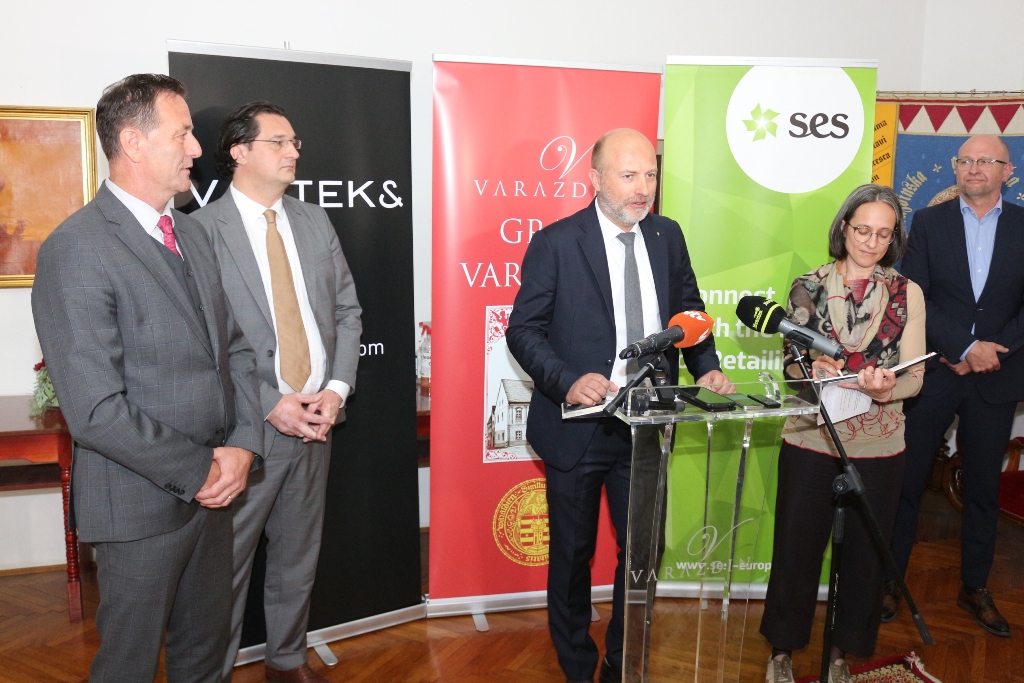
"Since the start of the restructuring in 2019, Varteks has worked on the sale of unused assets that generate additional costs as unused capital. By activating this capital, Varteks plans to settle its debts, modernize its business and expand its retail network. Varteks does not intend to engage in real estate but in the basic business, which is fashion, while we believe that the Varteks complex should definitely get facilities adapted to modern life, with a lot of greenery and functional roads and all other facilities that will ensure a higher standard of living. We are glad that SES, a sister company of SPAR has an identical vision and that as a buyer of a significant part of the complex it will build modern, beautiful, and functional contents that will fit perfectly into the characteristic architecture of the city of Varaždin, nurturing its historical heritage", concluded Babić.
The Zagrebačka street roundabout project financed by the Austrian investor will, upon completion, contribute to better traffic regulation for greater safety of citizens and its smooth running with new facilities in the city.
For more, make sure to check out our dedicated lifestyle section.
Tomislav Babic Claims Varteks Won't Leave City of Varazdin
November the 16th, 2021 - Varteks was rescued from sinking once before, and this fashion brand has since become very well known and highly respected throughout the Republic of Croatia and even beyond. Tomislav Babic claims that despite issues having arisen once again, the company won't be abandoning Varazdin.
As Novac/Jutarnji/Visnja Gotal writes, Varazdin's Varteks is once again emerging from another crisis. After wage arrears built up back during the summer months, one of the few remaining once-textile giants has finally re-stabilised its business. By selling part of the company's inactive real estate/property, the arrears managed to be paid out and raw materials were procured in order to increase the company's production capacity.
The coronavirus pandemic dragged the textile industry into very uncertain waters, so even the biggest ones began to need to further rationalise their business, among them Hugo Boss, which terminated its contract with the people of Varazdin for the sewing of top quality men's suits. Varteks, which is still recovering from the large debts that the company was brought into by the former management, had a hard time terminating its contract with Hugo Boss. All this misery after, a mere three years ago, it got a new ownership structure and re-strengthened its market position.
If Varteks didn't have thousands of square metres of inactive property in an attractive Varazdin location under its belt, partly along the main road to Zagreb, partly nestled in a quiet family neighburhood, it would hardly have been able to overcome the coronavirus crisis, despite new leadership and loyal employees. Many with significantly better starting positions at the beginning of the pandemic didn't succeed either.
That said, Varteks has been saved from the depths once again, and the company's new autumn-winter collection won over the audience and critics. Tomislav Babic has no plans to try and hide his satisfaction:
I'm even surprised by the speed with which everything is moving along. The land in the northeast of the complex was sold to the Austrian company SES, the sister company of Spar. There will be a retail park with several shops. We also have a pre-contract with Kaufland, which can be turned into a full contract very quickly. In addition, the City of Varazdin is interested in an old hall we have, which would be converted into a concert hall if they decide to take it. It's an old tailor's shop and the building of an old machine shop, a very interesting architectural building with industrial architecture, for which, in addition to Varazdin's administration, there are other interested buyers.
I wouldn't want to talk about figures and numbers until things are wrapped up and finalised. When we sell the office building, Varteks will be rented out, which is more financially viable for us. Varazdin lacks one such format of office building and these are all buildings that once enjoyed the preliminary protection of conservators as cultural heritage. They won't be demolished, even though they're no longer under protection, but our intention is to preserve the valuable heritage anyway. Due that building's size and position, it is ideal for, for example, a larger medical office or a law office. There are still a few buildings that we will sell as they are, with the intention of preserving the industrial design of the complex. There#s also a state-owned plot, which should be handed over to the City of Varazdin for social use, a kindergarten, a square or something else. Basically, Varazdin gets a whole new neighbourhood in this important location.
Are investors showing interest in housing?
They're showing that the interest in housing is growing. For this purpose, 50 thousand square metres are intended in the western part of the complex, adjacent to a quiet neighbourhood with family houses. In front of this residential area will be a park of ten thousand square metres, and mostly Croatian investors are interested in that.
What will you invest your sales money in?
With the money from the first sale, we paid out salaries, paid our taxes, bought fabrics and stabilised the business. We'll invest the funds from future sales into business development. The salary delay was due to the coronavirus crisis. The departure of Hugo Boss means a big drop in orders, which we cannot compensate for with our growth. So there was a loss that we will now cover by selling off our real estate. Many times, precisely because of the departure of a large foreign customer, we interrupted our work, but we didn't lay off any of our workers. We're going to keep them for next year, when we aren't going to have a surplus of workers. Moreover, it's safe to say that we're likely to lack workers. Half of all the money we receive will go to the banks, to close old debts. We'll also work with resale money.
What about the Varteks brand?
We've reorganised production and are filling our capacities with our own production, which was once done for us by subcontractors. The Varteks brand is going fantastically, the autumn-winter collection is, according to the interest shown, great. It's the work of old and new, young designers, under the creative guidance of Martina Ranilovic Vrdoljak. Many young, educated people got jobs at Varteks and moved to Varazdin. The collection intended for 25 plus was supposed to be out in 2020, however we had to cut the most beautiful part of it because of the coronavirus crisis. People weren’t going anywhere, there was a lockdown, so sales of coats and suits dropped drastically. Now things are different. People are eager to shop, our collection is great, the competition doesn't really have much to show for itself because it comes from Asia and delivery routes are far slower and more expensive. We have our own production right here so we can react quickly and fill the stores.
What about exports?
We've opened up two new stores in neighbouring Slovenia this year, in Maribor and Ljubljana, which was a brave move to open shops in the middle of the pandemic. A lot of Slovenians came to Varazdin because of Varteks and they make up some good traffic through the web shop, so we brought Varteks to them. The last store in Slovenia was closed about ten years ago, and these two new stores are quite enough for now. We also export to Bosnia and Herzegovina, but not too much, and we also export our products under the J. Lindeberg label all the way to China. It's to our credit that our products are being sold in China. We also export to Germany and Sweden to our partners, and web sales are growing across Europe. We're now moving more aggressively into the direct export of our own brand products. and the price of a luxury product is always sustainable. There are always buyers of luxury goods, and with the coronavirus pandemic, that market has grown. We're just building up our market share. We started from low positions and we can only conquer markets.
There was also talk of moving the company away from Varazdin...
There's no way that will happen. Varazdin developed alongside Varteks, Varteks originated in Varazdin. It's a symbiosis and always will be. Although it is no longer as important as it used to be, Varteks is definitely staying put in Varazdin. Most of our workers are from Varazdin County and it is a mission impossible to move Varteks at all. Not even to nearby Novi Marof to the former Levi's factory. True, it’s only a thirty minute drive, but we’d lose a lot of workers, which is out of the question.
For more, make sure to check out our dedicated business section.
Strongest Croatian Brands Survived and Succeeded After Independence
January 4, 2020 – A map showing production across the former Yugoslavia details the sustained prosperity of many Croatian favourites as some of the strongest Croatian brands are shown not only to have survived but have succeeded following independence
Media across Croatia, Bosnia and Serbia have surprised younger readers and reminded older readers with the publication of a map detailing production in the former Yugoslavia. While this trip down memory lane has caused a range of reactions across the countries of the former republic, looking at the map from a purely Croatian perspective gives some enlightening information. Namely, many of the strongest Croatian brands visible on the map are recognisable today. Some of the strongest Croatian brands not only survived independence but have since grown.
Bajadera - one of the most popular products made by Zagreb-based chocolate and confectionery manufacturers Kraš
Zagreb-based chocolate and confectionery manufacturers Kraš, Požega-based confectionery and drinks manufacturers Zvečevo, oil company INA, Koprivnica-based food company Podravka and Koprivnica-based pharmaceuticals company Belupo, vitamin drink Cedevita, Varaždin-based food company Vindija, Vukovar shoemakers Borovo, Varaždin clothes designers and manufacturers Varteks and multi-use condiment Vegeta are just some of the strongest Croatian brands that are present on the map. You are still likely to see these brand names on many Croatian high streets. Some have succeeded in reaching further into international markets since Croatian independence.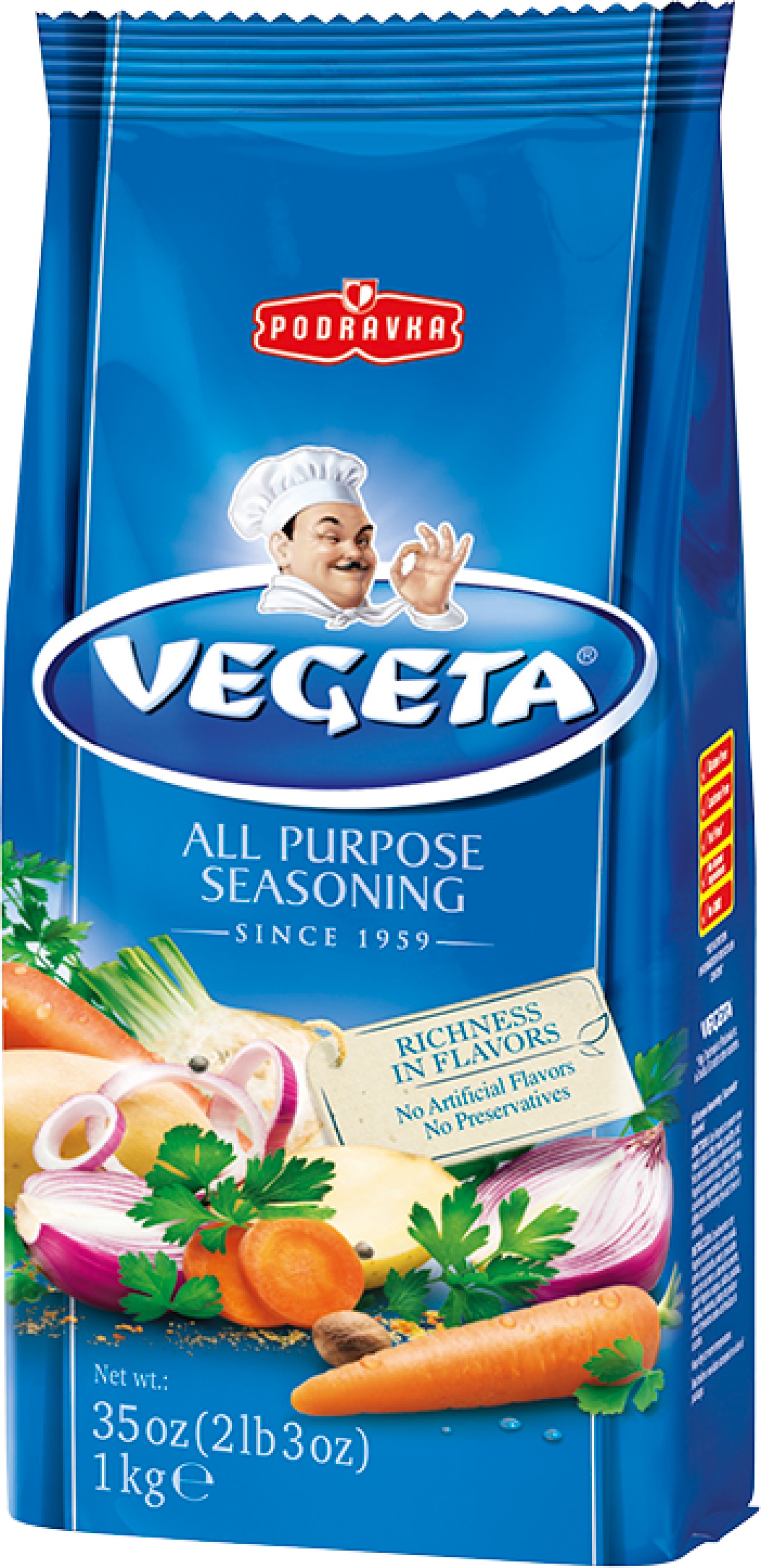 Croatian-made condiment Vegeta is sold all over the world
Croatian-made condiment Vegeta is sold all over the world
Of course, not every brand visible on the map of Yugoslavia production has fared so well. In their coverage of the map, Ri.portal reminds that “Some of the Yugoslav products were used by literally the whole world - ships, cars, planes, trucks, weapons and even computers were produced... However, many of these companies no longer exist or are bankrupt.”
In their coverage of the map, Bosnian website Klix reminds that Croatian shipyards Uljanik in Pula and 3 Maj in Rijeka were at world level and produced large ships for customers from all over the world. Split-based shipyard Brodosplit, which can also be seen on the map, survives to this day.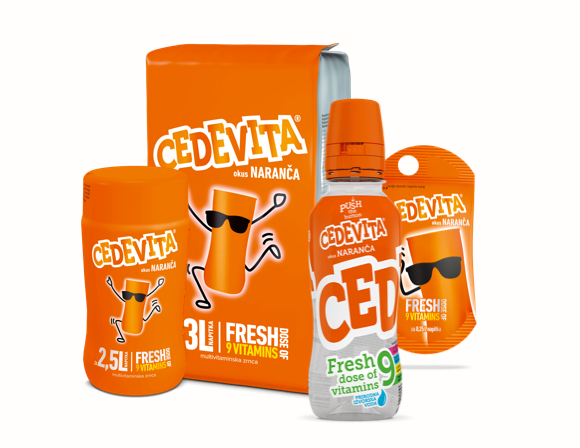
Croatian vitamin drink Cedevita comes in a range of flavours
Ri.portal goes on to remember that Yugoslavia was one of only five countries in Europe at the time that manufactured its own computers. “Probably the most famous is the Galaxy, while the first computer produced was the CER-10,” they say. One of the Yugoslav computer makers on the map, popular in the late 1970s, was Digitron, based in Buje in Istria.
Sadly, not all of the strongest Croatian brands have made it until today. Famous tractor and agriculture equipment manufacturer Tomo Vinković of Bjelovar is no longer in production. Their famously-reliable machines are much in-demand on the secondhand market. Two new tractor manufacturers, Hittner doo and the Prima tractor factory still make tractors in Bjelovar.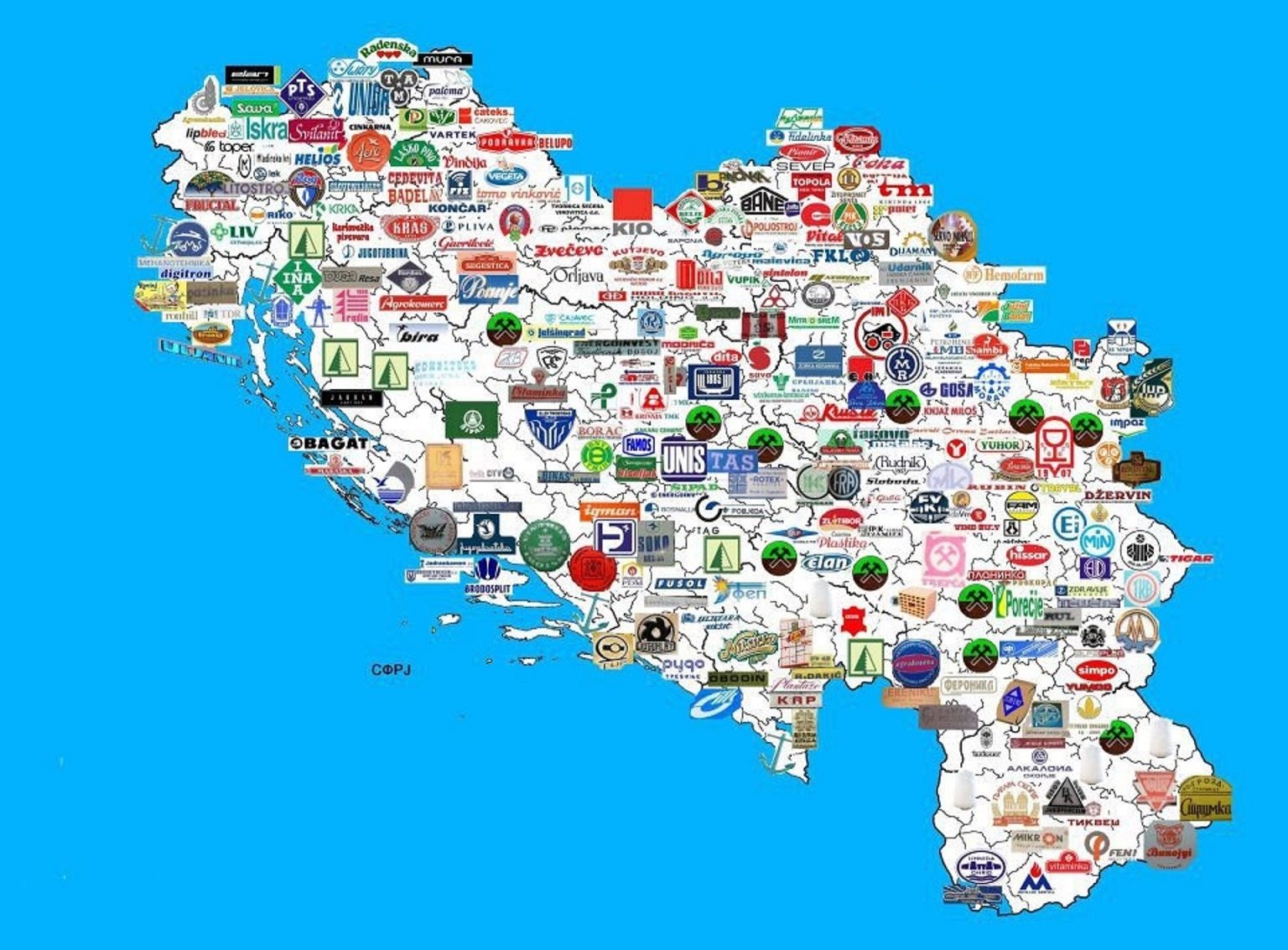
New Varteks Fashion Line - Another Reason to Look Forward to Spring
February 28, 2020 - Perfectly studied designs, the highest quality of fabrics and the elegance without compromise are the synonyms for Varteks fashion.
All of those should get the chance to shine at a fashion show within the Bipa Fashion.hr fashion week, which will take place on March 18th. The Varteks fashion line for the upcoming season clearly states "this is the quality and the style without compromise". Both the male and the female lines show the creative designers' vision at first glance, as well as the dedication to the masterful work, perfect fabrics and impeccable lines.
Under the leadership of the creative director Martina Vrdoljak Ranilović, Varteks will present at the runway the collection dominated by the perfect elegance even in the relaxed, more casual pieces. Vrdoljak Ranilović stated that Varteks continues to strongly build their fashion statements, and that their ambitions and potentials are large. They continue to insist on quality without compromise, but slowly they're adding some spices into their fashion statements. She added that they're looking forward to the presentation of their spring line during Bipa Fashion.hr week, as it gives them the chance to showcase the bolder fashion statements than are expected from such a large fashion house.

The male line is dominated by the infallible business suits, however, a portion of it is dedicated to the casual styles, adjusting to the needs of a modern working man. Formal suits of the spring line are made from the highest quality wool. The combination of wool, cotton and linen in the relaxed models symbolises the spring awakening, the easiness of style and design without competition. The vibrating colours, the playful patterns mostly based on the checkered pattern announce the spring in the best possible way. In addition to the recognisable suits, the line includes wind jackets, pants, Bermuda shorts, polo shirts as well as t-shirts. The jacket is the ultimate piece of the collection, and both men's and women's lines are built around it, and it's this turn in the style which will win over the hearts of those who are loyal to the fashion classics.

The Varteks woman is free, unburdened and she creates her own style rules. The female line for spring/summer 2020 is filled with fresh, spring colours, such as variants of green, safari colours from the colour of sand, through cinnamon and soil, and to contrast that the dominating black, white and red are present. The modern twist to the line is provided by the combination of natural materials: silk, cotton, wool and linen.
The statement of the "power dressing" in the new line is the jacket, coming in various versions: from the models who remind us of an oversized shirt, to the models resembling an overcoat more than a blazer, all the way to the classic models of blazers and light overcoats. The strong masculine feel is emphasized by the oversized design. Of course, the line includes dresses in different styles, and in this season you can't miss the denim line, enriched by the softer and more feminine details, such as frills, which are ideal in smart casual combinations.
As they try to maintain the traditional language of classic elegance, unimposing luxury and refined style, Varteks has enriched the various fashion forms in this line with more relaxed styles, fresh colours, prints and patterns, and thanks to that, they've created a line ideal for modern men and women who don't settle when it comes to quality.

The show by the Vareks fashion will be held on Wednesday, March 18th, on the first day of the 30th season of Bipa Fashion.hr. The program of this season of the fashion week will start on March 12th, with the opening of the photo exhibition From backstage to runway by Zvonimir Ferina. The key people of the Croatian fashion scene will talk about the current fashion events on the FHR talks platform on Saturday, March 14th, while the shows by the largest designer names in Croatia will be held on three separate runways in Pavillion 5 of the Zagreb Fair (Zagrebački velesajam) from March 18th until 21st. The official program this season will include Ana Maria Ricov, Klisab, Varteks, Spirit by T.B., Branka Donassy, BiteMyStyle by Zoran Aragović, Anthony Avangard, Marina Design, Ivica Skoko, Les Emaux, Arileo and Robert Sever.
Original text in Croatian from Fashion.hr here.


Varteks Modabus Goes International: Quality Suits for Maribor, Celje, Ljubljana
January 27, 2020 - A familiar brand returns to the cities of Slovenia, as the Varteks Modabus goes international for the first time.
It was once the fashion pride of all former Yugoslavia, working with some of the top names in fashion globally, as well as making its own-brand range of outstanding suits. Jeans for Levi Strauss were made in Novi Marof, a small town near the company's centre of operation in Varazdin, for example. At its height, there were 187 stores all over former Yugoslavia, as well as several international store presences.
After almost going bankrupt just before its 100th birthday, Varteks was taken over by successful Croatian entrepreneur Nenad Bakic, who was named in the Financial Times list of top 100 digital champions of Europe in 2018.
Bakic and his team embarked on an aggressive restructuring of the company, and he pumped several million euro of his own money in, while also revolutionising the marketing strategy into a new digital format to meet the needs of the modern consumer. You can read about the success Bakic and Varteks are achieving in turning the company around in this recent TCN feature.
The prime location regional real estate of the company in all the neighbouring countries and all over Croatia had been slowly sold off to service debts before Bakic's arrival, and the company needed a strategy to once more engage with customers on the high street.
The solution has been a huge hit in Croatia - the Varteks Modabus. Having purchased a bus in Germany, it was refitted to serve as a mobile fitting room, and soon the Varteks Modabus was doing the rounds of the country, bringing the new Varteks ranges back to the high street in a modern and mobile format. Working with QR codes and the company webshop, the Varteks Modabus has been a very effective bridge between the factory and its customers all over Croatia.
And this week, the Varteks Modabus will go international for the first time, with three appearances in Slovenia. The bus will begin its mini-tour of Slovenia on Wednesday at Trg Leona Skutja in Maribor from 12:00 - 20:00, before heading to Celje at Mercator Centre on January 31, and Ljubljana BTC on February 1.
Varteks has been selling into the Slovenian market now for a year via its webshop, but this is the first time that customers will see the famous fashion brand on the streets in several decades. One more milestone in the rebirth of this proud and stylish company.
To follow the latest from the Varteks, follow the dedicated TCN section.
Nenad Bakić on Saving Varteks from Clinical Death
Nenad Bakić talked to Branko Podgornik from Novi list about the year he spent as the President of the board of Varteks.
Nenad Bakić, a prominent Croatian entrepreneur, probably had one of the hardest years of his life in 2019. He was the President of the board of Varteks, and has dedicated almost all of his energy to saving the company from failing, and it seems that he's succeeded. In the last couple of days of 2019, he was showered with truthful and touching messages of gratitude on social media. In them, the workers of the company with the hundred years of tradition thanked him for his hard work and efforts, as he invested his money and business know-how to save more than a thousand jobs, made sure people were paid on time and brought some new zest into a company that was sliding into the abyss.
He's been known as an innovative entrepreneur for two decades now, he started the "Moj Posao" website, started and financed the Institute for Youth Innovation in Croatia, and is a donator and investor in many companies in Croatia. For his extraordinary undertaking from last year in Varteks, he has received many thanks and acknowledgements, not just from the workers and citizens of Varaždin, but also from the members of the business community and the wider public. The company, in which Bakić managed to buy a 47 percent share, is gradually recovering from the years marked by acquired losses. The metamorphosis of the company is still not complete, but the worst is behind it.
After the successful operation of salvaging Varteks, Bakić has withdrawn from the position of the President of the board, which he held for a year. He was replaced by Tomislav Babić, who was the member of the board of the company. Bakić returns to the Supervisory Board, where he will continue to work to revitalise one of the highest quality textile companies in Croatia and the region and allow it to grow back to its old glory.
Bakić says that his entry into the company was an accident.
''Some ten years ago, as Varteks was going through one of many crises, then President of the board approached me and suggested I invested in their stocks. He was afraid of aggressive buyers, and he wanted some investment into the company.
As an investor, I followed the underrated stocks, which might have a very bad or a very good perspective. If your portfolio is wide enough, your good investments can cover some losses. That's how I became a small shareholder in Varteks. First I had 6 percent, then I kept buying on the market and got to 17 percent two years ago. It wasn't a significant investment for me, as the price of the stock was very low.''
Asked if he knew the situation within the company, Bakić replies that he wasn't interested in that then. The company was doing poorly, and in time he realised that over the last 13 years, the company's losses amounted to over 800 million kuna. In former Yugoslavia, Varteks was one of the biggest real estate owners, they had over 200 stores. In order to cover those losses, the real estate was constantly being sold.
In 2017, an English investment fund wanted to invest in Varteks and turn things around and make their business healthy again. In the last moment, that fund withdrew, and the Board repeated their call for investment, saying that they'd need between 20 and 40 million kuna in order to stabilise the company. Bakić decided to invest 20 million kuna at that point, as he was already an important minority shareholder, but he had a responsibility toward the company, to help turn it around.
After the investment, he saw that the situation was much worse than what the management was saying. It was almost destroyed, it had no capital, and no merchandise on the shelves. The fashion component, important for this industry, was neglected, as was the selling network. Work done for foreign partners led to losses. Right after he invested, it turned out that there wasn't even enough money to pay the workers and suppliers. The banks wouldn't give Varteks any more loans, so Bakić had to provide his own money – during 2018 he loaned the company more than 30 million kuna on the short term, without interest. He still hopes he'll be able to have that money repaid someday.
Bakić says that they tried to work with the former management, but that wasn't working out very well, and the company was sinking even further. In early 2019, he personally took the position of the President of the board for a year, to try to turn things around. The difficult situation continued, as Varteks needed more capital, and the banks still refused to give loans. He wanted Varteks to start producing more, and not just work as subcontractors for foreign companies. But, the company needed more money to start that cycle, so he loaned more of his money in 2019, around 15 million kuna. The good news is that the latest loan was provided six months ago.
The situation with textile companies in Europe was very difficult, and some of the European companies managed to profit from the European Union funds. However, in the 2014-2020 period, those funds were unavailable to Varteks, as only small and medium companies in Croatia could be financed from the European Union funds. Bakić says that it was a wrong decision by the government because the big companies carry the progress, which then, in turn, helps the SMEs. That's how the Bulgarian, Polish or Portuguese textile industries managed to restore their capacities, but Croatia was not able to.
He recognised the tradition of a hundred years in Varteks and the quality of their products. However, over the past decade, even that tradition of quality had been slipping away – their fashion was not as attractive, and the quality of the materials was reduced.
International brands took the lead on the Croatian market, beating Varteks in sales up to ten times. Bakić's strategy was to radically increase the quality of the material for the clothes, bring back the top materials by Italian producers to create recognisable products, such as suits. The second prong of the strategy was to re-establish their fashion, and they hired Martina Vrdoljak to be their creative director. Fashion is changing with increasing speed, as the producers now need to create nine or ten collections per year. To be able to provide that rapid-fire exchange of collections, much of the production is returning to Europe, mostly to Turkey. They want to become a part of that trend.
They also keep providing clothes for the Croatian army and police, and many other clients. It's a marginally profitable operation, and isn't creating problems, so they haven't focused much on that.
The results of all those efforts are amazing. Their retail income will be increased by between 50 and 70 per cent, and the company will have positive results overall. All of that happened in the year when the company was basically clinically dead, of which Bakić was not aware when he became the CEO. Bakić is, however, still not ready to celebrate victory, as there are numerous risks ahead. He adds, though, that if this transformation of Varteks succeeds, if it's possible to save a company from such an uncompetitive industry that was on the brink of failure, then it proves that almost anything is possible in Croatia.
Bakić says that they're extremely active online, especially on social networks. They also opened an online store, and during November, 7 percent of Varteks' sales came through that webshop. That's a remarkable result. Many Croatian celebrities promoted their suits in their campaign "Imperfect men in perfect suits" etc.
They also bought an old bus and turned it into a fashion store, and it has been travelling around smaller towns in Croatia for nine months now. It's possible to try something on in the bus and buy it using your phone, and the size and colour you want will arrive to your address in just a couple of days. That's how they reach buyers in rural Croatia, and also promote the use of the internet for shopping. All of that shows that they've managed to restore faith in the Varteks brand. If this trend continues, they'll be back in the safe zone in 2020.
They've also changed many things within the company, as they hired some new managers and changed the managerial culture which then brought new, positive energy. Workers in the textile industry are never paid well enough; however, but in Varteks the employees don't work for minimum wage, as they get some bonuses. Those bonuses were increased in the last year, and the employees didn't even demand that raise. Bakić wants the employees of Varteks to work for more than minimum wage, as soon as that is possible and the company is profitable. He promised the workers that not one kuna of dividend will be given to the shareholders, as long as their salaries are that low.
Read more about doing business in Croatia in TCN's dedicated "Business" section.
Varteks Modabus Coming to Stari Grad!
May 8, 2019 - The Varaždin-based Croatian company Varteks has been producing dresses, coats, jackets and other clothing for specialized purposes, including uniforms for the Croatian Army and the police for 101 years.
Nenad Bakić Rescues Varteks: Workers No Longer Leaving, Salaries Paid on Time
Famous textile industry brand Varteks is getting a new lease of life after Nenad Bakić became the majority owner of the Varaždin clothing manufacturer last year. Bakić recently took over the position of the CEO in order to accelerate the business processes that should lead to the full recovery of the company. Workers have stopped leaving, after a long time the company is no longer closing its shops, and wages are being paid on time, reports Index.hr on April 12, 2019.
“We found Varteks in a situation in which it actually only pretended to be a corporation. Varteks is a company that was in the slow decay for 10 to 15 years, accumulating a loss of 800 million kuna in the last 12 years. In such a situation, substantive and fierce management is needed. Therefore, I am working to dynamise the company and turn it towards real life, instead of monitoring processes that do not serve any practical purpose. We have put workers and designers in focus, instead of corporate bureaucracy. Paško Vela is also a member of the management board. We are working to empower the people below us. We will bring in several more people, and I hope that by the end of the year we will stabilise the company and significantly accelerate the growth so that I can return to the supervisory board,” said Bakić.
In addition to its own clothing, Varteks is also producing clothes for some of the world's most famous brands, such as Hugo Boss, but now the focus is back on its own collections. They also produce special clothing, such as police and military uniforms.
“Sewing clothes for others is not a hugely profitable job, and it can even be a loss-making one. We are implementing changes in our brand and retail programme. We are dynamising the situation, putting in the centre our designs, our project constructors and factory workers. We are launching four new stores; we have outstanding results in retail, and we are already producing orders for the fall/winter collection. The number of coats produced will be 50 per cent higher. Varteks has a fantastic quality; however, it did not know how to present the quality it has. Now, apart from improving the design of the clothes, we will continue to increase its quality,” said Bakić.
Although wages in the textile industry are low, they have managed to start paying them on time, and the next goal is to increase them. They also want to attract workers from other textile companies. “With the recapitalisation and interest-free loans which I provide to the company, for the first time after a long while workers are getting paid on time. It is true that salaries are still low, but we have just concluded a collective bargaining process where we have agreed on better incentives for workers. Our goal is to increase salaries. The aim is to make more money, to pay back our debts and invest in productivity, and higher productivity means higher wages. Higher wages are the only way to keep workers and increase their numbers. We think that some other textile firms will soon cease to exist, so we want to increase the attractiveness of jobs in order to attract the workers from these companies. Varteks used to lose 15 workers a month, but now, in the last four months, we have had just a few departures,” said Bakić.
The financial situation in Varteks is not favourable even after recapitalisation. They have no support from banks, and Bakić is financing the company with interest-free loans. "We have a strong need for working capital. However, Croatian banks have given us a grand total of zero kuna of working capital. They operate as local branches of their owners, and they do not want to take any risk because they are doing fantastic business anyway. We have a framework to receive guarantees in the amount of a million euro, but in order to get it, we had to provide a million-euro deposit. It is crazy. Financing needs are solved by me providing interest-free loans to the firm. Since my financial power is not infinite, we are struggling to survive, but we have something working for us – the retail is doing great,” said Bakić.
Translated from Index.hr.
More news about Nenad Bakić can be found in the Business section.
Hope for Hrvatska: Nenad Bakic on the Varteks Digital Revolution (Interview)
March 20, 2019 - It was once among the top brands in all former Yugoslavia, its fashion sought after internationally. Are good times coming back to Varteks in the 101st year of its history? TCN learns more about the digital revolution from Varteks CEO and member of the 2018 Financial Times top 100 digital champions, Nenad Bakic.
In my many years of living in the Soviet Union, Russia, Georgia and finally Croatia, the scenes have been depressingly all too familiar. The once great Socialist system, whose factories not only employed most of the locals, but defined a town or city, lay in ruins, its once-proud factories abandoned, as well as those once guaranteed jobs and all sense of hope. Ghost towns where once thriving communities existed, fed by the factory that defined most aspects of the regular way of life.
Having moved from Hvar to a village near Varazdin a couple of years ago, it did not take long for the shadow of former fashion giant Varteks to make itself known.
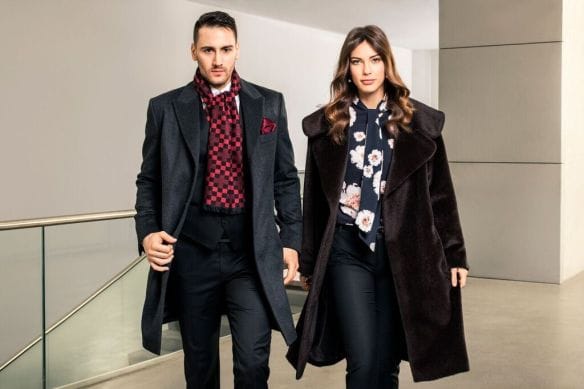
Varteks WAS Varazdin for the longest time. This gorgeous Baroque city (yes, I do really think it is the prettiest in all Croatia) and a former capital before Zagreb, was synonymous with the local textile factory, which at its height had no less than 187 prime pieces of real estate selling their high-quality wares all over former Yugoslavia. And abroad. Varteks suits did a brisk trade in Italy, UK, USA and Switzerland, to name but some Western markets where the company had an established presence.
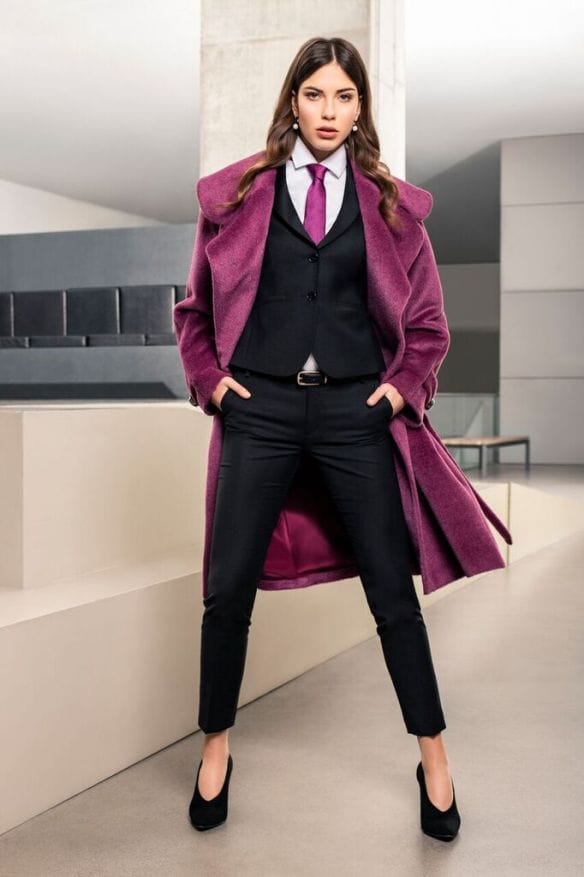
At its height, Varteks employed no less than 11,500 people, with production facilities all over Varazdin Country. Levi jeans were produced in Novi Marof, and there were other production facilities in Ludbreg and Ivanic, as well as the mother ship in Varazdin itself.
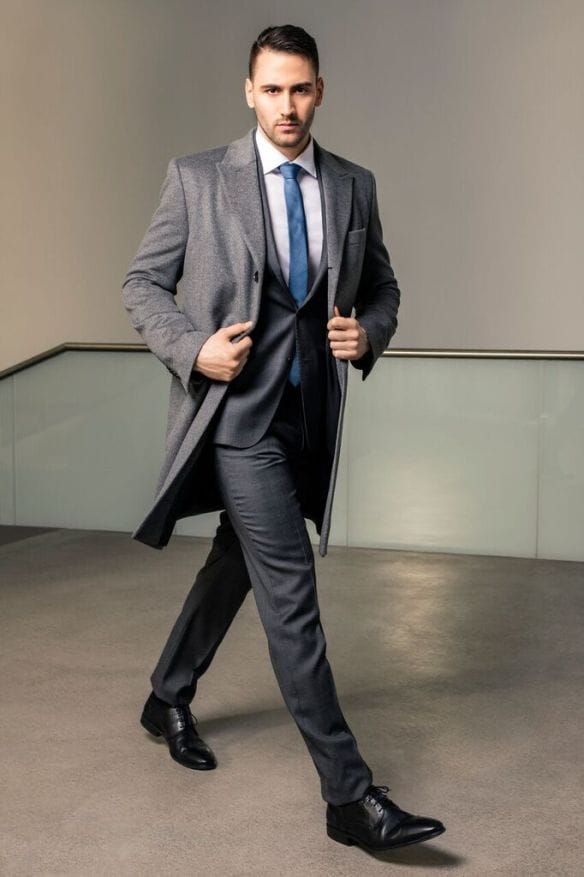
Croatian industry is all but non-existent these days, with the Homeland War putting paid to much of that, but in the case of Varteks, the company continued after the war, but it was soon a shadow of its former glory. While the quality of its product never wavered and it continued to sew for some of the world's top fashion brands, as well as producing its own lines of clothing, the workforce was literally decimated from 11,500 to 1,200, and crippling losses (800 million kuna - about 110 million euro) over ten years brought the once proud company to its knees.
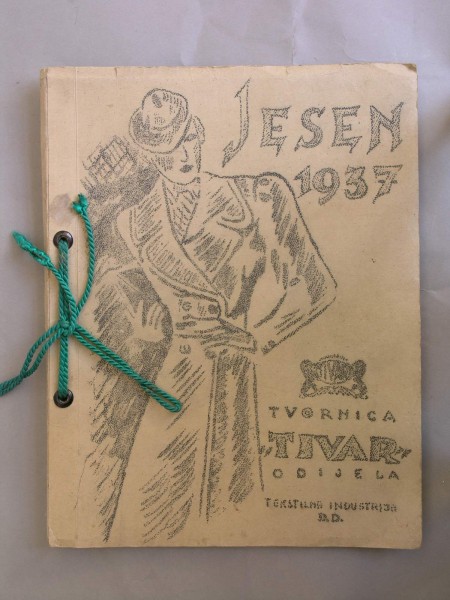
(The 1937 catalogue, when Varteks was trading under its previous name of Tivar)
One of Croatia's leading entrepreneurs, Nenad Bakic, took over the reins as CEO last year, the 100th year of the company's existence.
Bakic has a no-nonsense approach to life and a clear vision of how things should be done. It is one of the qualities he possesses that led The Financial Times to include him in the list of Top 100 Digital Champions of Europe in 2018.
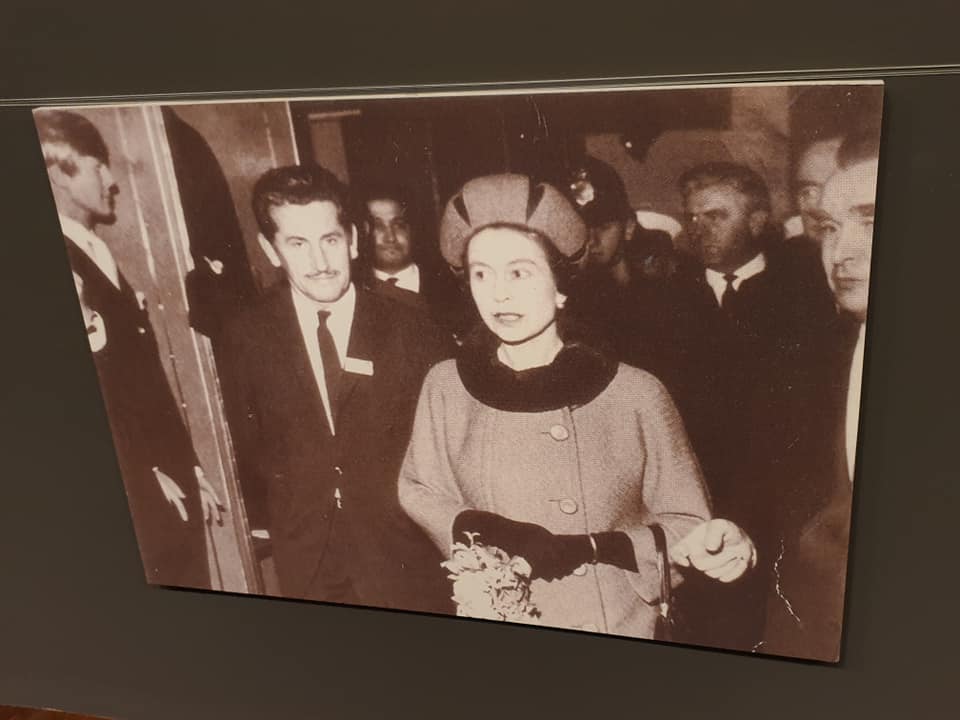
(Queen Elizabeth II at a Birmingham trade show with the then Vartkes CEO in 1967)
Bakic quickly grasped that Varteks had an incredible heritage and brand awareness in the region, but also desperately needed to modernise its marketing approach.
He took over the company as it celebrated its 100th year, and a really outstanding exhibition to mark the centenary is on display at the Varazdin City Museum until the end of this month. If you can't make it, check out the video tour above.
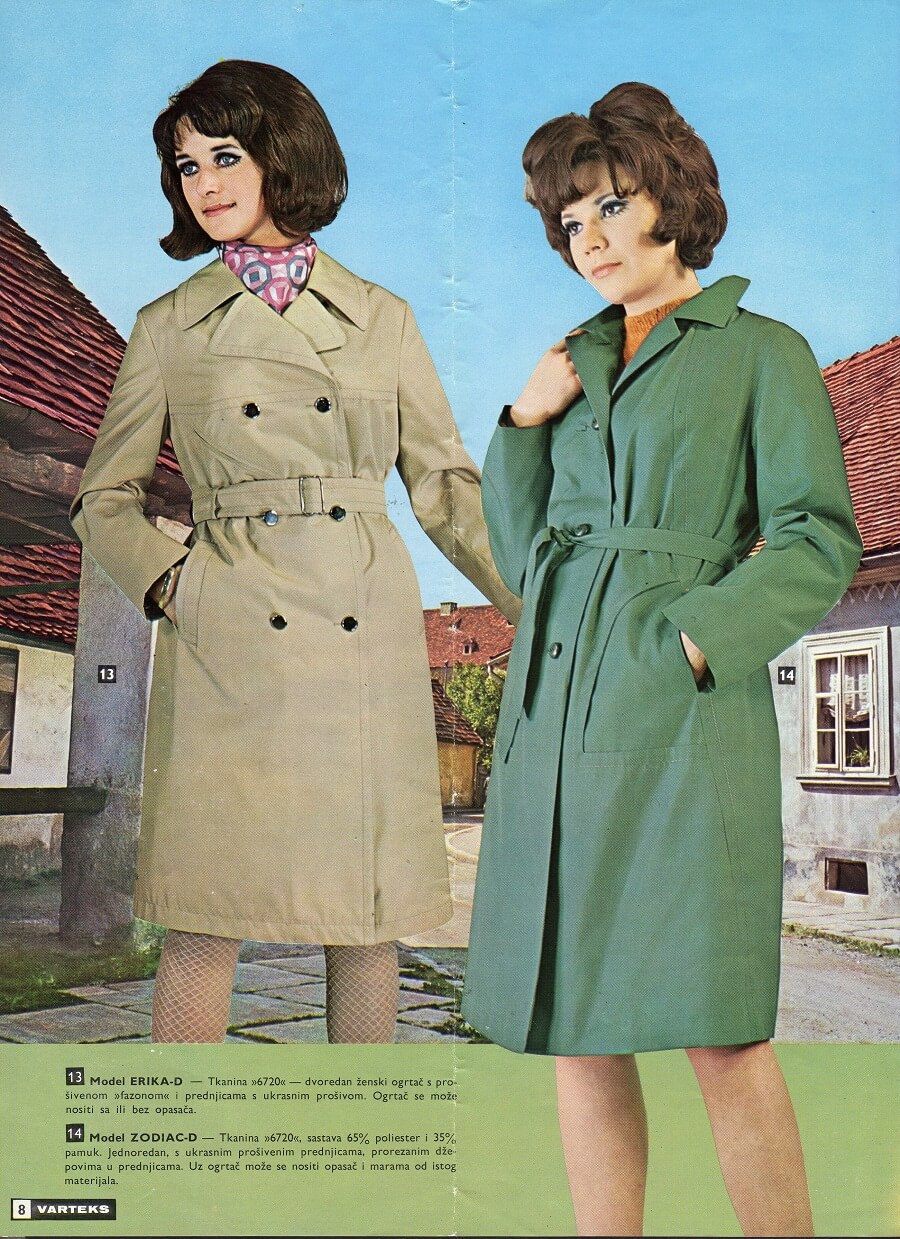
Varteks suits and commercial clothing have been at the cutting edge of fashion and technology throughout the company's existence.
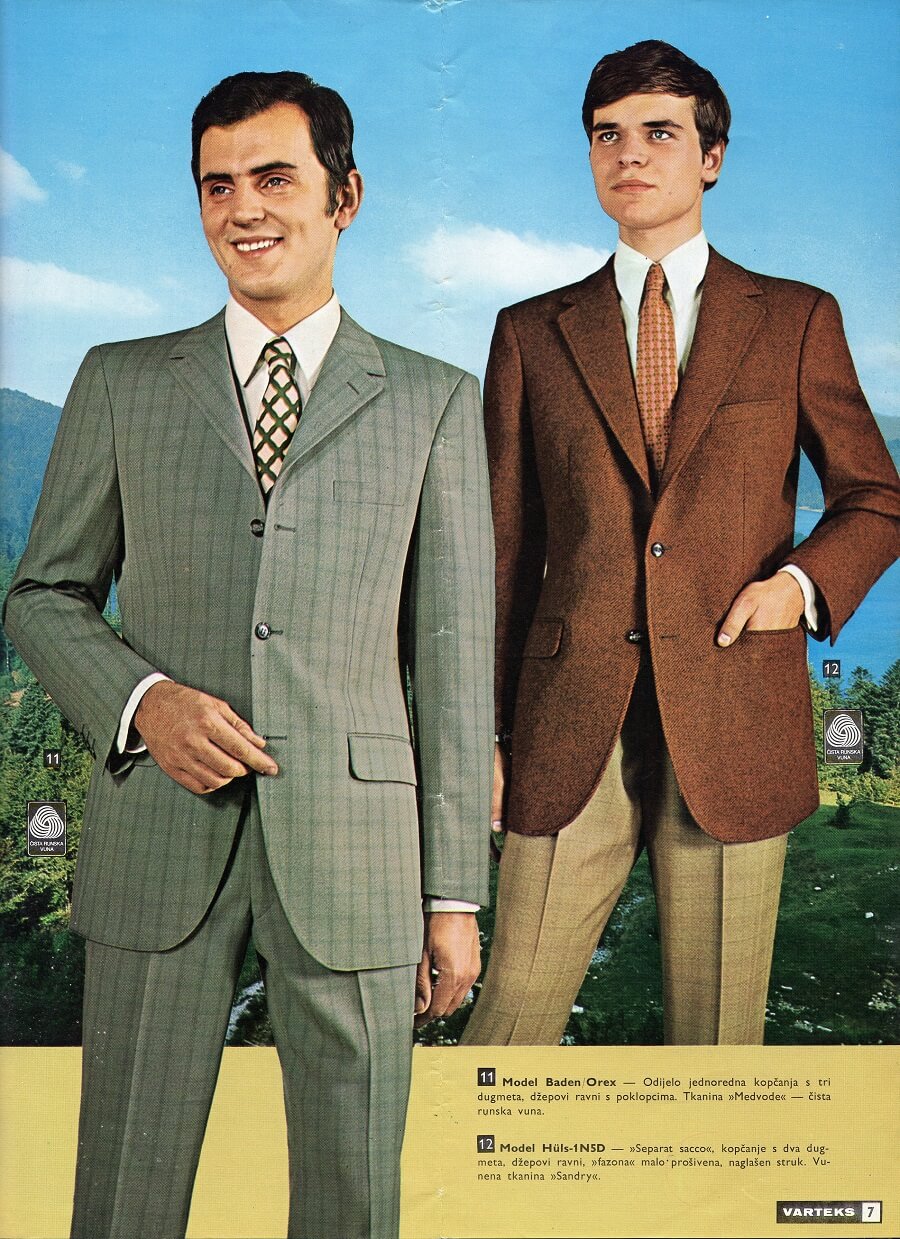
It ran a successful mail-order catalogue business, for example, some time before this 50-year-old correspondent was even born.
A quite delightful promo video from the Varteks archives above - seeing how the Varteks catalogue and clothes delivery service affected the lives of a normal family. The year is 1967.
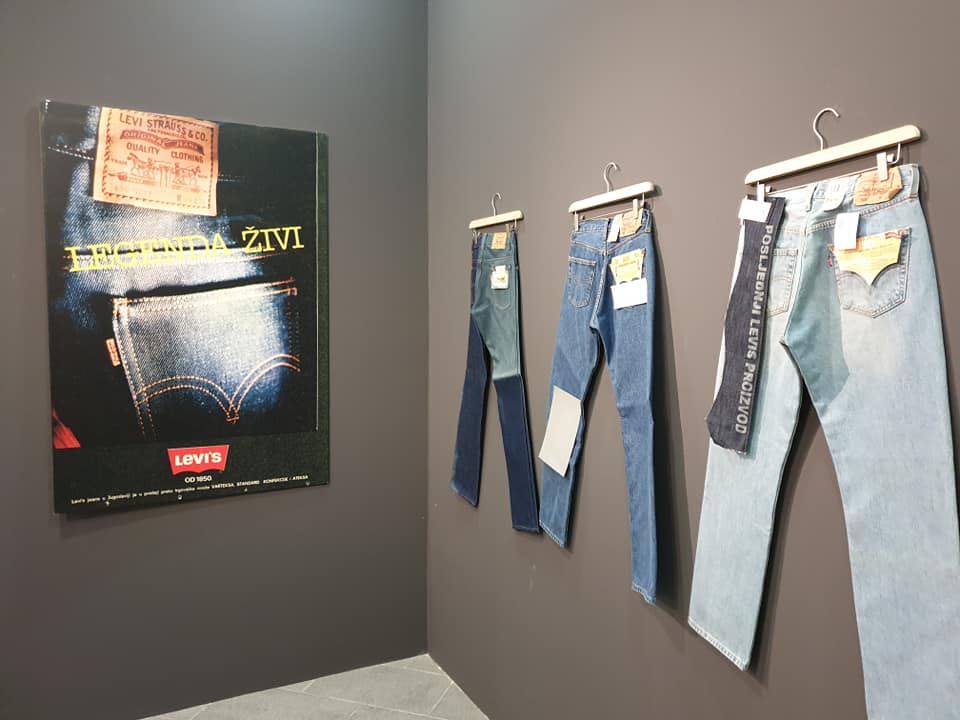
(From the 100 Years of Varteks exhibition - Levi Strauss, Varazdin-style)
But the all-too depressingly familiar story of industrial decay may not be the final chapter of the Varteks story. Nenad Bakic and his team have a clear vision of how to reestablish the Varteks brand, playing on its strengths of its proud history, branding and exceptional quality and adding innovative digital campaigns to complete refocus the Varteks brand and target market.
I caught up with Bakic in his Varteks office in Varazdin yesterday, where he was kind enough to spare time for an interview. In his own words:
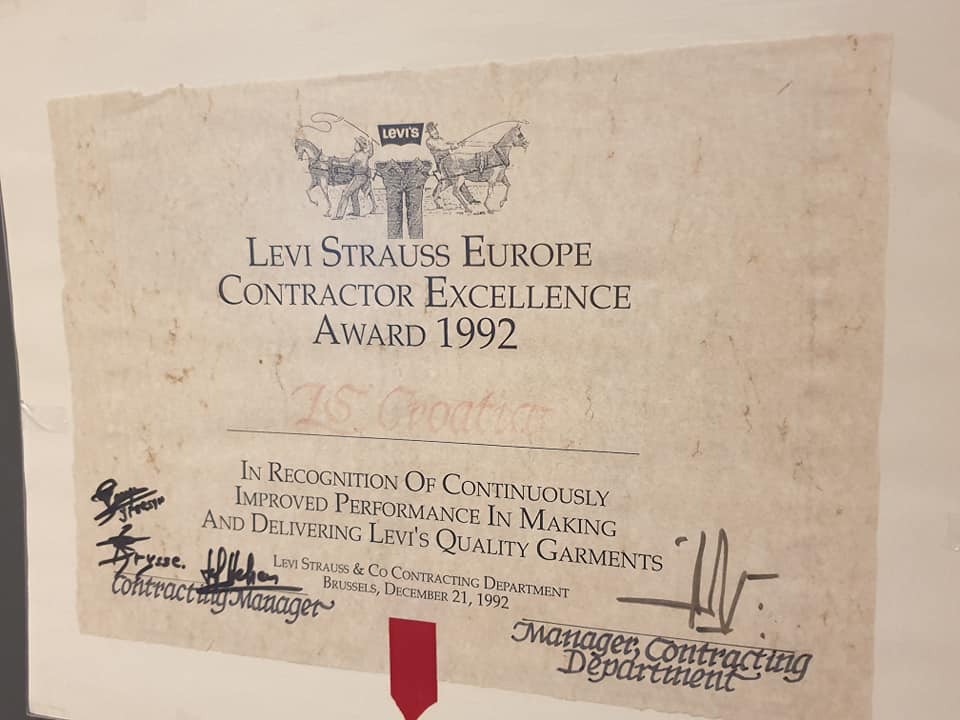
"Varteks was the largest and most important clothing and fashion company in ex Yugoslavia. But it has been in constant decline I would say for the last 50 years. People have noticed the decline in the last 12-15 years when year on year losses accumulated to more than 100 million euro, which ate most its substance (assets), but it has in fact been declining for many more years than that.
"It was founded in 1918 by Czechs from Moravia, and it quickly became the most important textile company in former Yugoslavia.
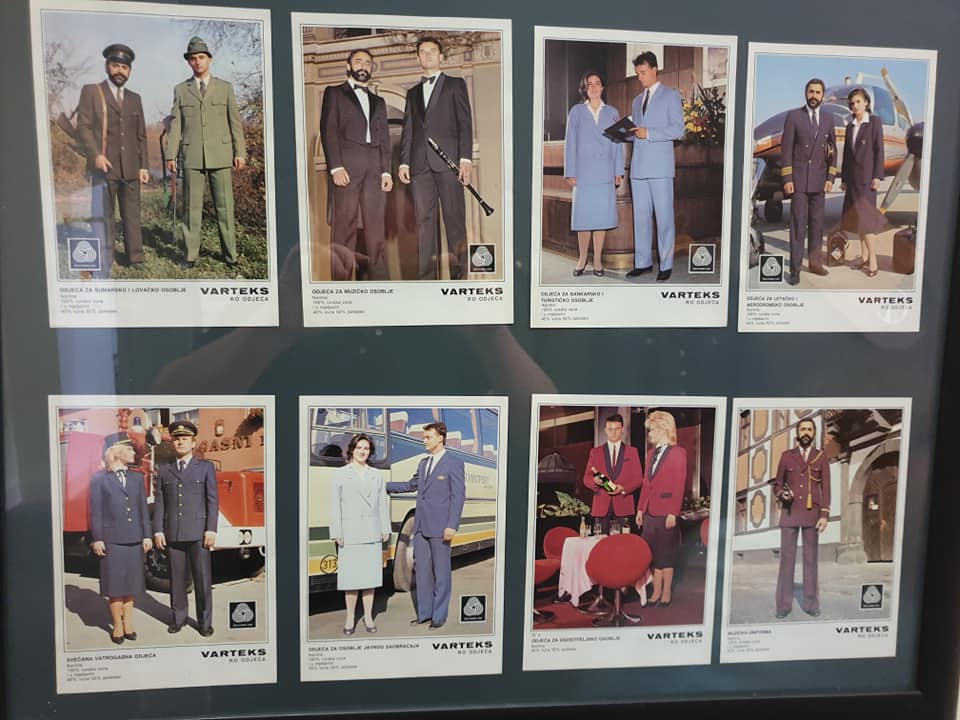
(Airline crew, hunters, hotel workers, and musicians - there was a Varteks uniform of quality for all)
"As textile markets declined and foreign markers were lost, the company concentrated on sewing for other labels. This is what we continue to do in our two factories, sewing for Hugo Boss and other global labels.
"Then we have a second business in producing very high-quality uniforms to NATO standards, for special forces, police uniforms, corporate clothing and so on.
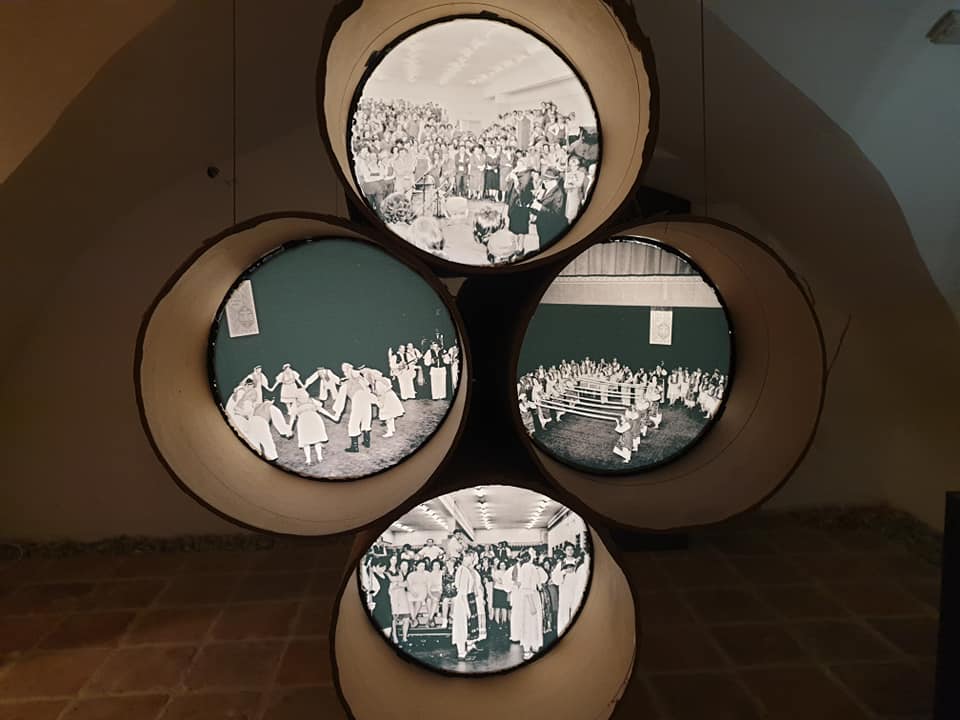
(From the 100 Years of Varteks exhibition - Varteks was much more than just a factory, it was a community, a way of life)
"And our third line of business, which is our main focus now is on our own brands and retail. Varteks used to have the largest retail network in ex-Yugoslavia, some 187 stores in all. These were mostly sold to cover the constant losses. And so Varteks is no longer a big player as before in the region, and companies such as Zara or H&M are ten times larger than Varteks today. But in people's minds, Varteks is still a huge company, I would say, and it is also the only relevant Croatian brand which survived.
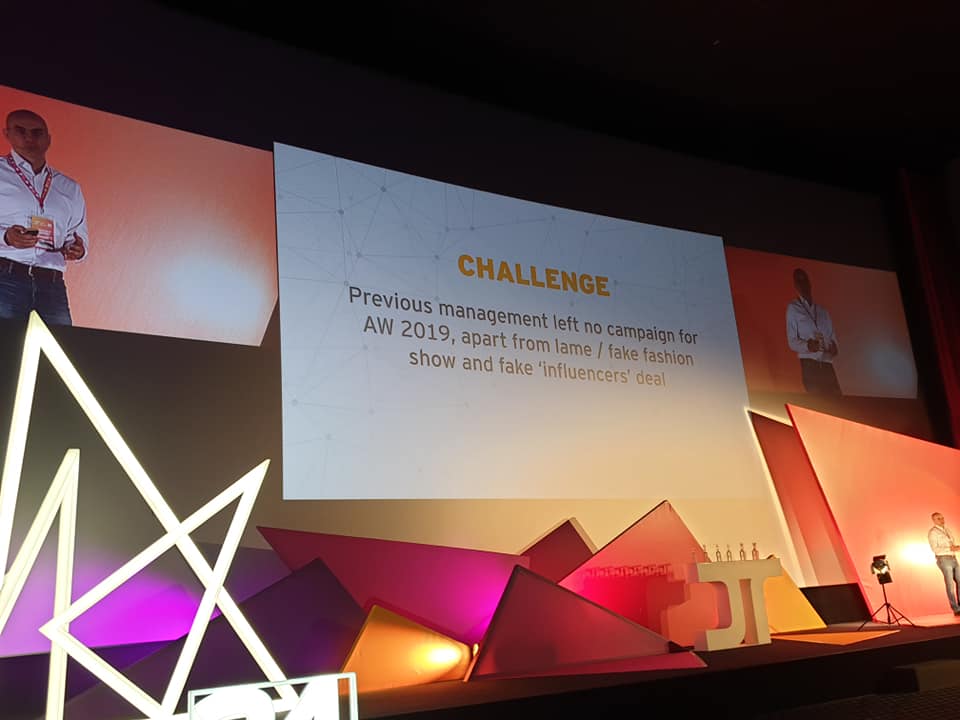
(Bakic gave an excellent presentation on the digital revolution at Varteks at last week's Digital Takeover conference, organised by 24 Sata, in Zagreb)
"Now we also have smaller designers in Croatia, who are also successful, but these are all small businesses. But out of the larger clothing and fashion houses, Varteks is the only one left.
"But a year ago, it was bankrupt, again, and this time there were no assets to cover the losses. So when I became more active as a supervisory board member and now CEO, we decided on a very clear direction towards quality and reestablishing the presence of our brand.
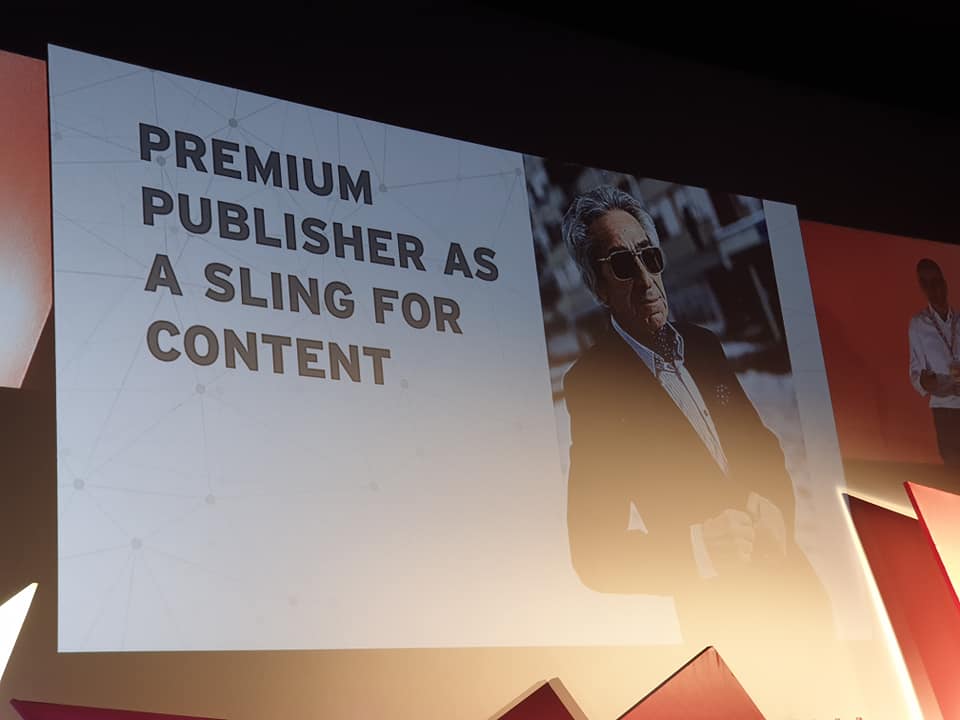
(Campaigns such as Vintage Varteks and Imperfect Man in a Perfect Suit have been unqualified successes)
"We are working hard to reestablish the quality of the brand. The quality of the brand has always been high, but perhaps sometimes not on the level of some of the brands imported to the Croatian market.
"With regard to the quality of the fashion and clothing, we are aiming for extremely high levels, so we are now putting in our stores the highest quality suits and clothing.
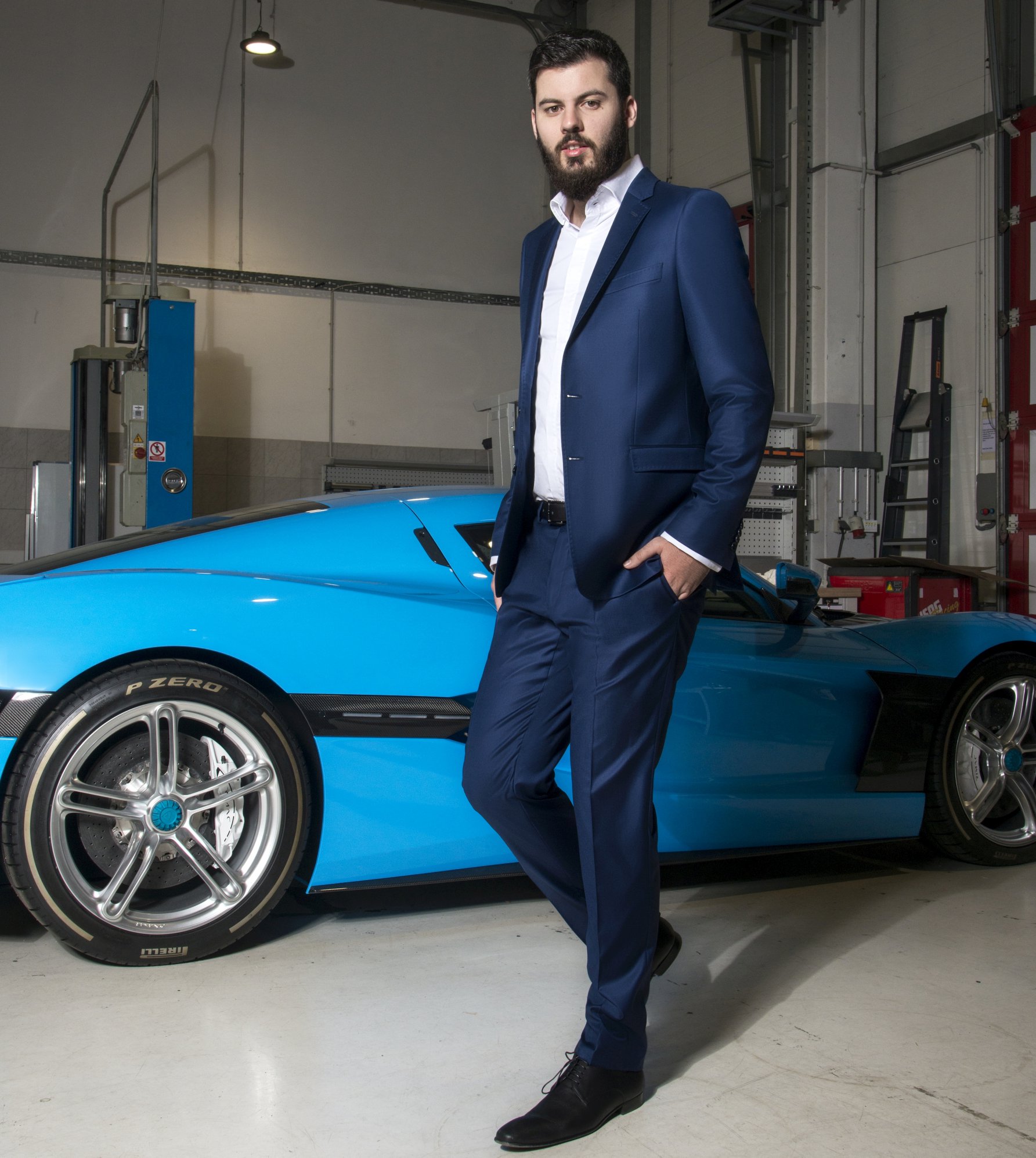
(Several prominent Croats have been proud to join the campaign to resurrect this Croatian industry with so much potential, including Mate Rimac, owner of Rimac Automobili, who is taking the automobile world by storm with his electric cars and technology)
"We produce for some of the largest brands in Europe. So the quality is there but two things were missing.
"Firstly, the design did not always follow the latest fashion, and we have fixed that. And the second was the marketing approach.
"I would say now that we are far and away the most innovative fashion company in Croatia when it comes to marketing. We have several marketing initiatives and we are developing a very broad portfolio now. So we have the highest quality suits in our limited edition, but we have also entered a new niche of suits for young people.
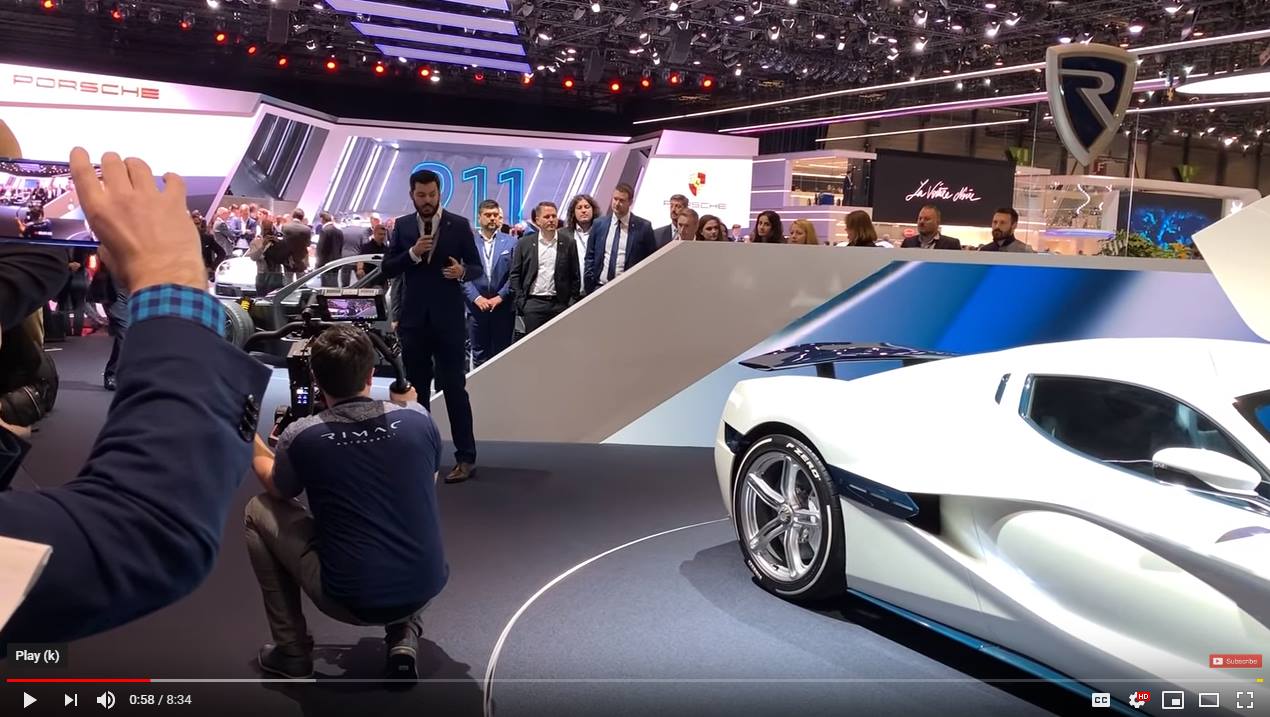
(What to wear when you are presenting the fastest electric supercar in the world at the Geneva International Motor Show? A Varteks suit of course!)
"This was one of our new ideas to team up with gamers, where we have a new collection of suits for the younger generation. We are mutually reinforcing our brand, and as you can see from their social media statuses, they are also very proud to be part of our initiative, and to be ambassadors for our suits."
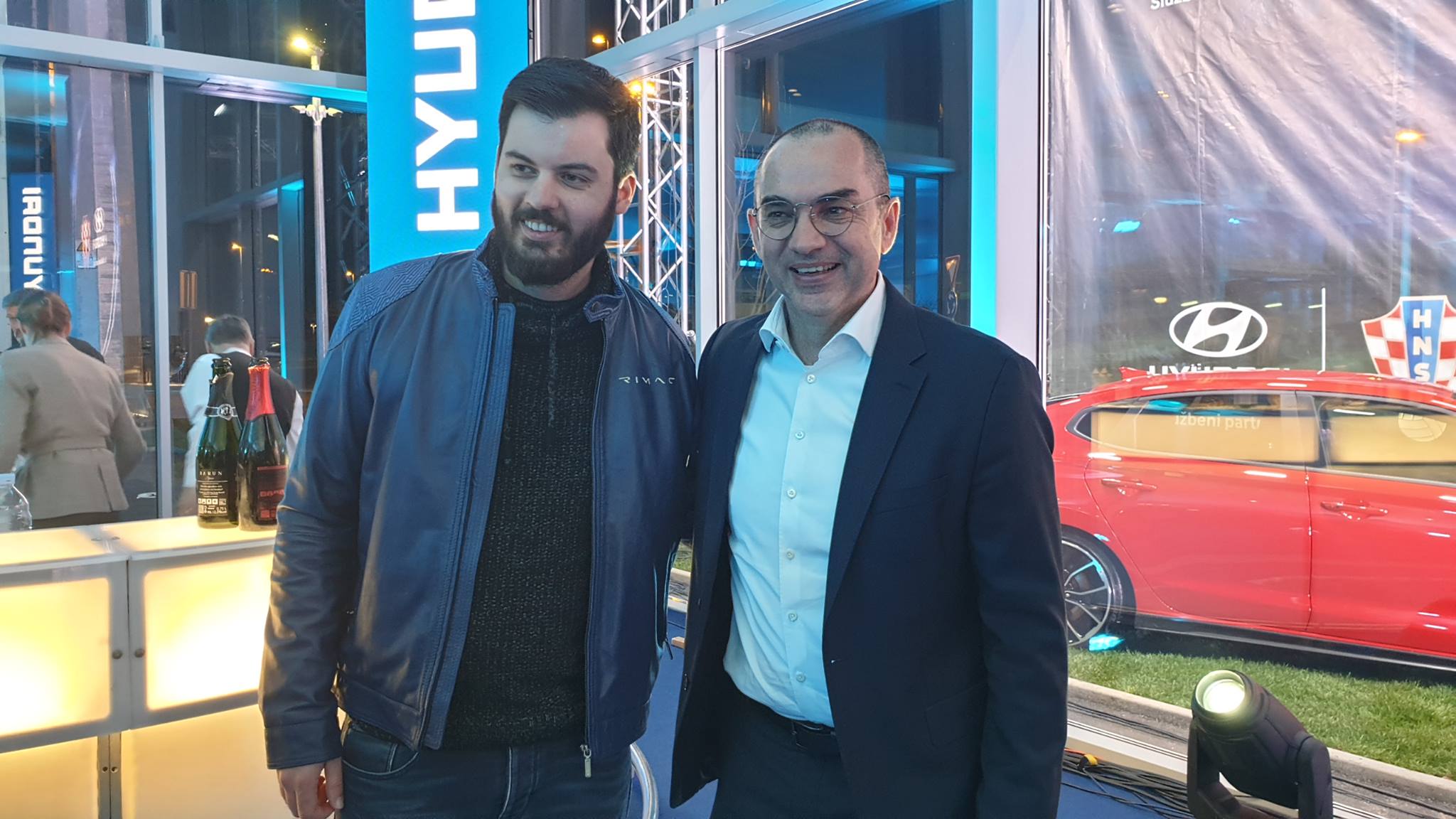
(Two men who bring hope for Croatia, both on The Financial Times list of top 100 digital champions of Europe in 2018 - Mate Rimac, left, and Nenad Bakic)
Tell me about the Varteks Modabus.
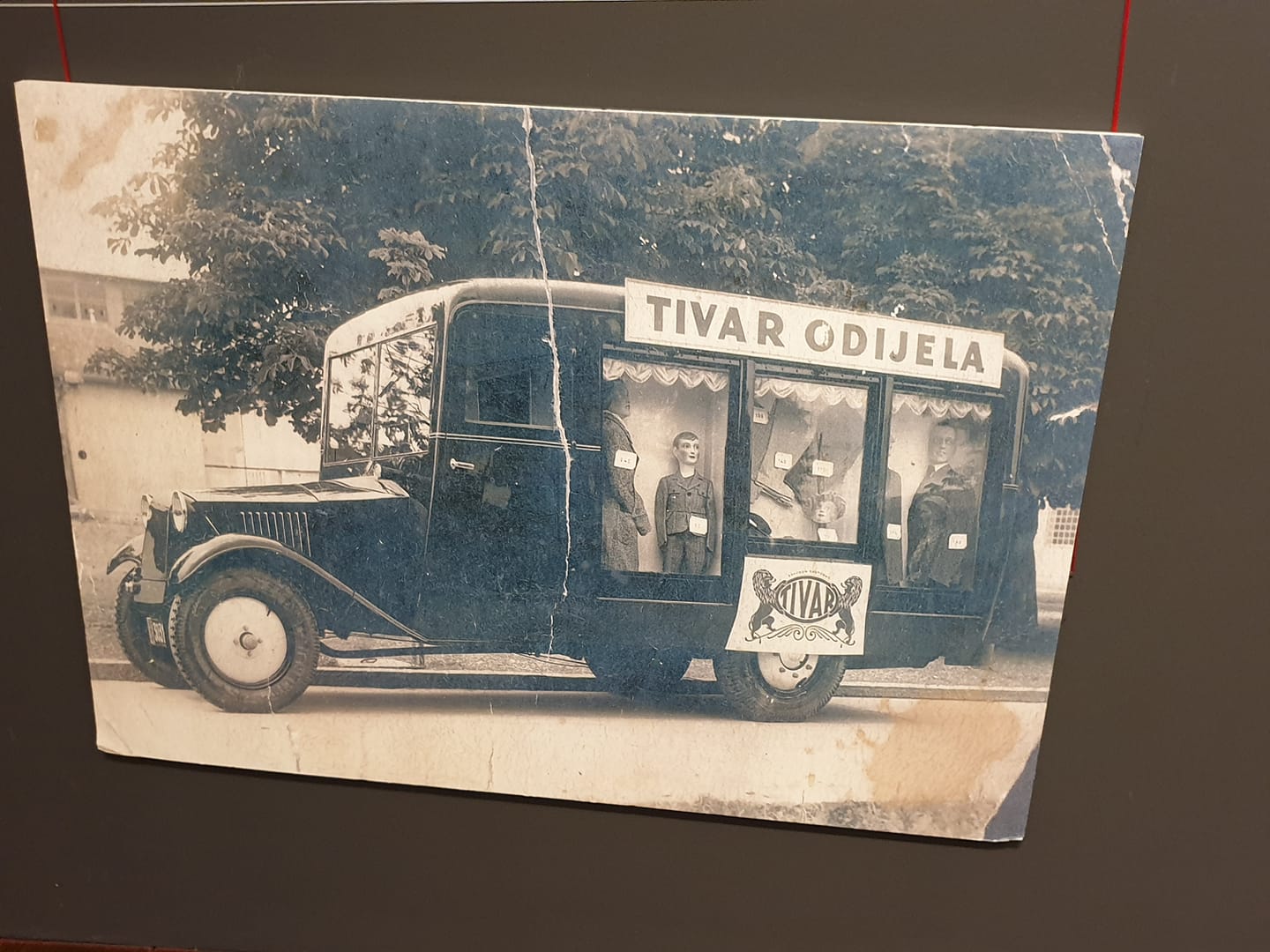
(Selling the Varteks way in 1937)
"Here we have something which I am really proud of, and it is something that can be presented at any retail conference worldwide. What we have done is taken something which is very old in retail – the moving shop. When they used to sell Coca Cola in the Wild West 100 years ago, or even Tivar (as Varteks used to be called), they did so with a moving shop, which was usually in the form of a moving truck.
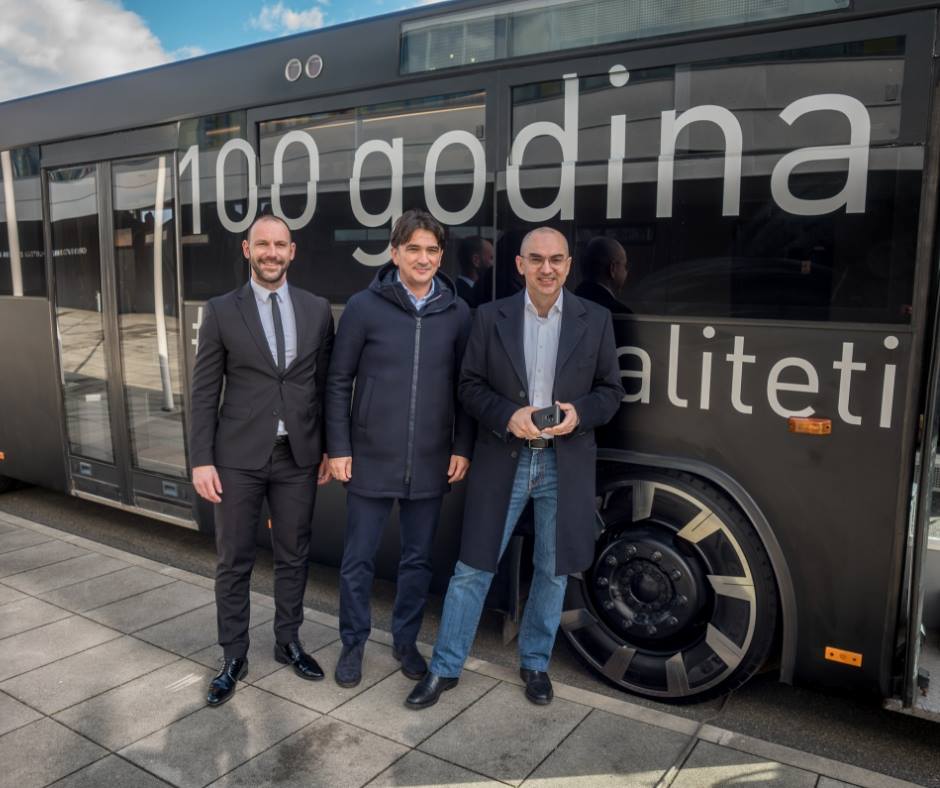
(Selling the Varteks way in 2019, with Varazdin man, World Cup coach Zlatko Dalic in the middle)
"We have taken that from history and reinterpreted the idea by taking the largest possible bus, which has 40m2 inside. So it can really function as a presentation like a modern shop, but it is also paired up with the online shop.
"So what is the customer journey? The customer feels very welcome and comfortable inside the shop. It has changing rooms so customers can try, but we don't sell anything in the bus. All the items have a QR code, and they can scan the QR code, which goes through to our webshop. From there it is just one click to SMS/WhatsApp/Email confirmation with a coupon which offers a 10% discount if they buy within 36 hours.
"So the customer journey involves using the oldest possible method of retail – the mobile shop – with the latest technology and webshop. I am very proud of this concept. Plus, as Varteks sold most of its shops all over the country, it sends a strong message to our customers that we are coming back to the places we used to be present, and also that we are agile, modern and responsive to new trends."
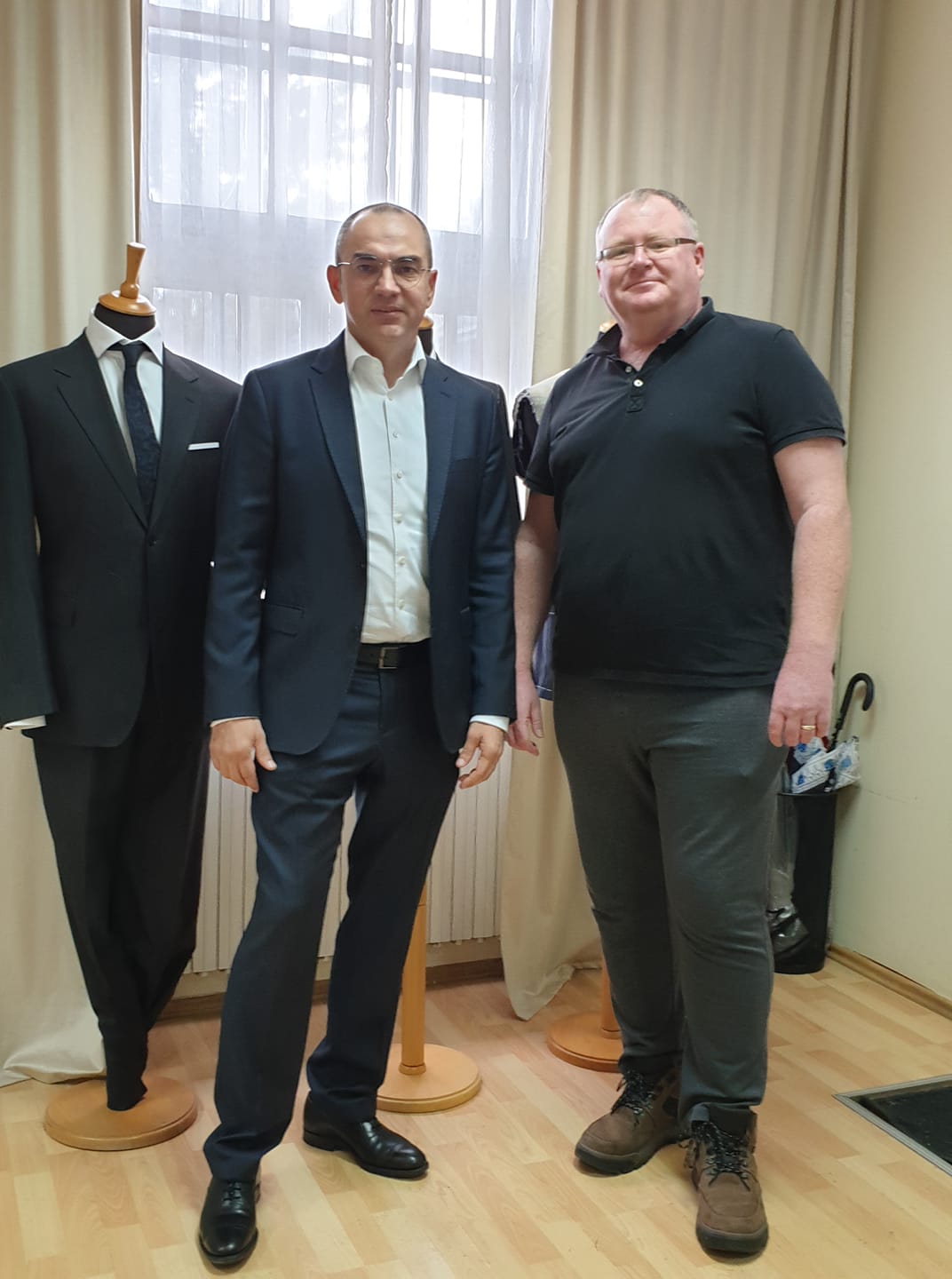
(TCN with Varteks CEO Nenad Bakic in Varazdin. I am not in a Varteks suit... yet.)
Are you planning on taking the bus outside of Croatia?
"Our next goal is to visit Bosnia and Hercegovina, as we have a market presence there. We are now trying to reestablish Varteks in Slovenia, and we have webshop deliveries to Slovenia now. Internationally, we will see. Currently, we have fantastic quality at great prices, but no brand presence in most other countries, so we will probe those markets through the webshop and see."
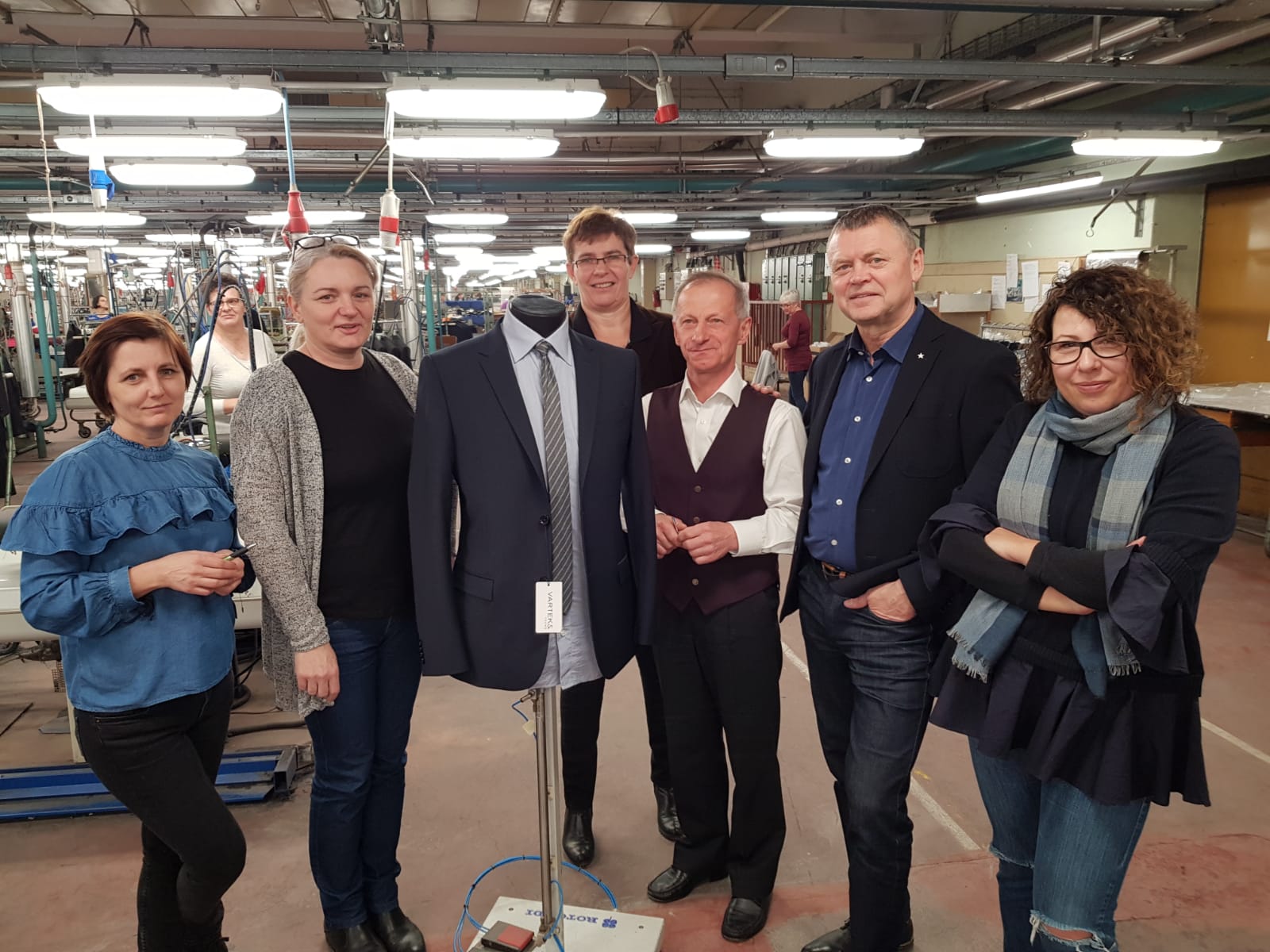
Check out the Varteks website and webshop.
To learn more about progress in the Varteks story and Nenad Bakic's other initiatives, follow the dedicated TCN page here.
Nenad Bakić Discusses His Business Philosophy
Here at Varteks, we can see the 50+ years of decay. We are now discarding supplies, including buttons that someone ordered and bought 20 years ago, said Nenad Bakić.
“Until recently, the chairman of the board drove with a driver in the official A8, and the minimum wage wasn't even paid to workers. I think that with a radical change in the business model we can get better quality and go a step further. The suits which we produce today are literally the best of the best quality-wise,” reports Express on March 16, 2019.
He then presented optimistic development plans. “Through our retail section, we will return brands to the Croatian market and soon present ourselves to the international market with modern products. As for employees, we are ready to accept any worker who wants to return. If some of the other companies here were to go bankrupt, we would be ready to reopen a second shift. These are the plans we are ready for, but we have not yet started them.”
You are involved in an experiment that is risky for several reasons. First, it is about the textile industry that is considered to be dead in this part of the world, and secondly, you have invested a lot of money. What brought you to that?
I'm a long-term, so-called “deep value” investor and, if necessary, an activist investor. I do not consider my investment in Varteks to be any different than, for example, in Valamar, which was a much more significant investment for me, or, for example, Lošinjska Plovidba. But the collapse of the Varteks business led to the destruction of value and ultimately required recapitalisation. Since there were no interested investors, and I had already become a large shareholder, I thought that the amount foreseen in the call for recapitalisation was sufficient to turn the trend around. It turned out that it was not enough. Then, as Varteks needed more money and was completely cut off from financial markets and banks, I had to start borrowing for salaries and other obligations, so my investment became larger. Of course, I did all this because I could see the potential. And I can still see it today, but it seems that the whole investment will be significantly more demanding. However, success isn't guaranteed since the textile and fashion industry is very demanding and our starting position is extremely tough. Unfortunately, we are also hitting some of the “mines” of parasitic structures that have spread into ministries at the highest of levels, people who “have Croatia” and constantly speak about “statehoodness.”
Many Croatian companies in this branch did not succeed. Have you analysed these cases?
I would say that Heruc was a typical Croatian transition real estate investment. I did not follow the DTR case. However, textile and fashion businesses are very demanding, given the low costs of global production and the dominance of global brands.
You said that this branch in Croatia would see even more difficult days ahead. Why do you think that?
The textile and fashion industries are not the same thing. The Croatian textile industry is not price competitive. On the one hand, there are global producers with a significantly cheaper labour force, and on the other hand European producers who have been able to upgrade their plants with EU funds and become more competitive. Our EU negotiators made a big mistake and determined that large companies can't get EU funds, only small and medium-sized ones. This was in accordance with their failed Marxist views about the “conflict of labour and capital.” Namely, why should you help companies with substantial capital, because that inevitably goes against the workers. The truth is precisely the opposite; the work is more valuable when there is capital. Thus, textile companies in Bulgaria and Poland have been upgraded, and their wages are higher, while our remaining companies cannot pay salaries. On the other hand, big companies help small ones. We have just saved a medium sized company, our partner in the textile industry. I think all textile companies will soon be unable to continue doing business. Rescue will be possible just for those who have their own brands and retail, and Varteks is uniquely positioned in this regard. I, therefore, expect the number of Croatian workers to start growing soon, but we have not yet considered importing foreign workers.
Your company has enormous inherited problems due to decades of decay. I suppose these problems are similar to those in many other businesses in Croatia. Can you describe them in more detail?
First, financial devastation – no working capital or investment funds, and a lot of accumulated liabilities. Second, technological backwardness. Third, managerial and cultural devastation – too few good people, although some of them are excellent, whom we have recognised as possible transformers. Fourth, misunderstanding of the market economy, in terms of brand positioning, pricing policy, client approach... Fifth, an outdated business model.
How will you solve them?
We have significantly updated the design of our major products, suits, to match the quality we produce for some of the world's leading brands, such as Hugo Boss. We have a very active webshop and marketing strategy focused on digital channels. We have lowered prices for some products to be cheaper than the competition. We are rapidly developing new products. We have started proving the quality of our products with our limited collections of suits and coats using the world's most delicate fabrics.
Varteks has recorded some 800 million kuna of losses in the last ten years. That is 80 million a year, a lot of money... How did they cover it?
Mostly by selling one of the most impressive real estate portfolios anyone had in Croatia. Just remember the department store at the main square in Zagreb.
How will you cope with the competition from Turkey, China and similar countries?
Let's look at production first. The question is what is competition. Almost all of the largest global brands produce in low-cost countries. Even we create some of the products that are not essential to us in Turkey. But, for example, Hugo Boss, which has its own large production in Turkey, still makes some of the key products in Croatia. The reasons are high quality and speed. Today, in fashion, there is the trend of quick changes to the collections and frequent updates, which means that production is often located as close to the place of consumption as possible. So, we have a chance to organise production with higher profitability. For now, we are doing very well in returning Varteks's market position in that segment, and I do not see why it would not continue.
You have announced that you need more workers. Is Varteks burdened with excessive administration and a shortage of workers in production and creative personnel in the broader sense?
We have a shortage of creative people, such as constructors and designers, but we also have too many people in the administration segment because some of them are not doing their jobs at the level people in production do. We will continue to look for improvements. Our key competencies are creators, strong sales and marketing staff, and above all, workers and managers in production. My heart will always be primarily with the workers in production, and I believe that everybody else who does not do their job correctly is actually stealing from their pockets.
Where will Varteks be positioned, in which segment of the market? What will be the ratio of the local market and exports?
In sewing for others, the emphasis is on exports. In fashion, we will first at least double the market share in Croatia and increase exports in parallel. We have just experimentally enabled the purchase via webshop in Slovenia, which will be followed by some other European Union countries. Of course, as soon as we see that a market has a demand, we start looking for local partners, as we have already done in Bosnia and Herzegovina. We will soon present a line of sports, outdoor clothing, with military quality and similar designs. I am sure it will be an export product as well. All in all, we will be positioned as a producer of high to very high-quality products at a medium price. In short, strictly market orientation, with maximum focus on the client.
You are demonstrating that it is possible to have the industry in Croatia. What would you do to make it better, easier, more efficient?
I do not know whether I am demonstrating that, I am only proving that it is worth trying. Among the measures, I would ask the media to ridicule all the pests, including some ministers, who are persistently imposing on the nation the ancient ideals of the "statehood" economy, for the sake of maximising their personal interests through networking with strange structures in the Croatian economy and society in general. I would order all the elements of public administration system to serve those who pay them. Can you believe that an assistant minister recently said to me, as an investor partner in Đuri Đaković, who saved the company that was supposed to be a Slavonian version of Uljanik: “You lost nice money on Petrokemija, and I would not sleep peacefully if I had shares of Đuro Đaković.” He did it at the moment when he tried to convince me that there should be a new “uhljeb” appointed as the CEO. Imagine how many seconds would such a person last in a normal country if he were to speak to an investor, let alone a partner, like that. The terror of these people who “have Croatia” must stop. I would reduce bureaucracy and taxes. Perhaps it looks like some things cannot be changed, but let me remind you that in the most challenging area of all, education, we have made a revolution with the Croatian Makers project and launched the most extensive such programme in the EU. Moreover, in one of our programmes, we are creating an avant-garde, large project in Croatia, Serbia, Bosnia and Kosovo, in partnership with Google, which is unthinkable in other segments. We have demonstrated that Croatia can be a leader.
What do you think about the plans for the salvation of Uljanik and 3. May shipyards? Does Croatia need the shipbuilding industry?
The question is what is “Croatia”. Is it a worker who should just this year pay 5,000 kuna, and maybe that 5,000 kuna is needed elsewhere? Or is it some politician, or perhaps some reseller of steel etc.?
Some say that Croatia is unprepared for significant reforms and it would be a good idea to start at least with the small ones. What do you think about this?
I do not believe in such defeatism. As a charity organisation, the IRIM has created a tsunami with its Croatian Makers movement and laid the foundations for a social revolution in the next 5-10 years. Of course, we should be doing marginal measures as well, but I do not agree with the abandonment of the larger ones.
How long can Croatia continue like this?
Forever. In addition to tourism, we also have remittances from overseas workers, which are now about two times higher than direct foreign investments. It is also necessary to add other parts of the so-called secondary incomes, such as pensions from abroad. Direct foreign investments will, however, increase, but towards rent activities, mostly tourism. So, we will have resources for endless maintenance on this trend. If we are satisfied with demographic, relative material and spiritual decline, we will have no problems with sustainability.
Ireland had about 3.9 million inhabitants in 2003 and Croatia had 4.67 million people. Today, Ireland has almost five million people, while Croatia has fallen to four. Can Croatia do something similar to Ireland?
Yes.
More news about Nenad Bakić can be found in the Business section.
Translated from Express (reported by Boris Rašeta).



